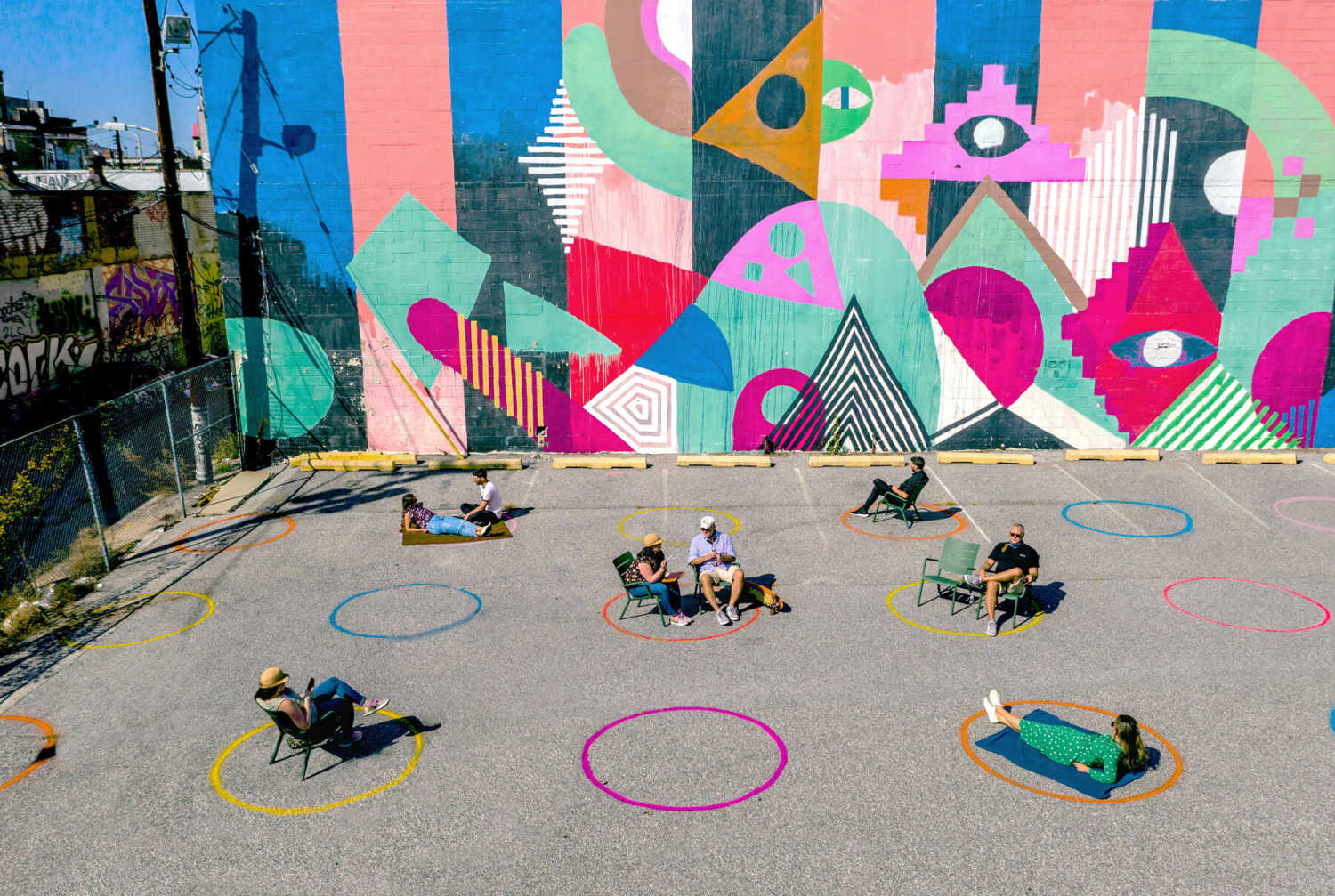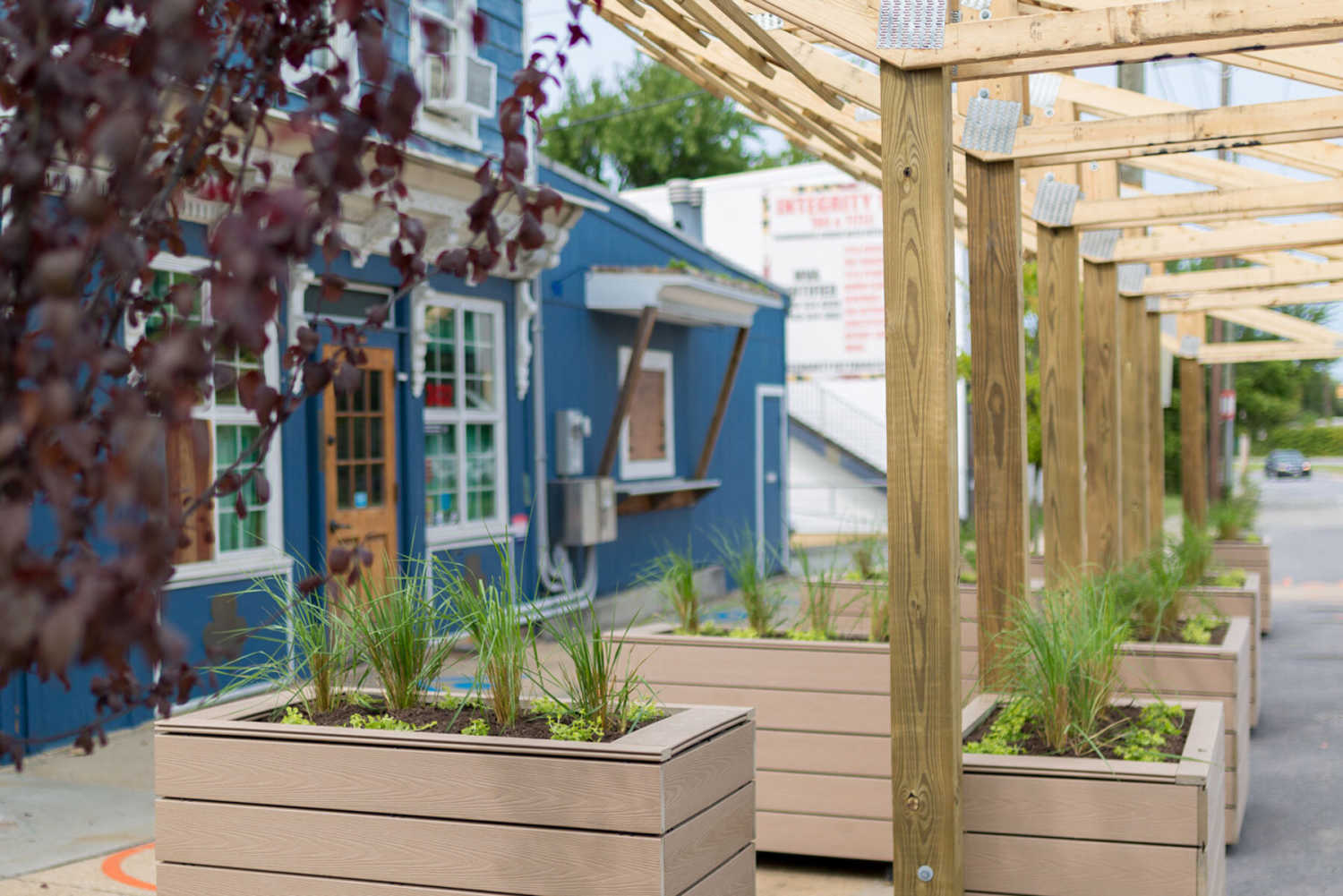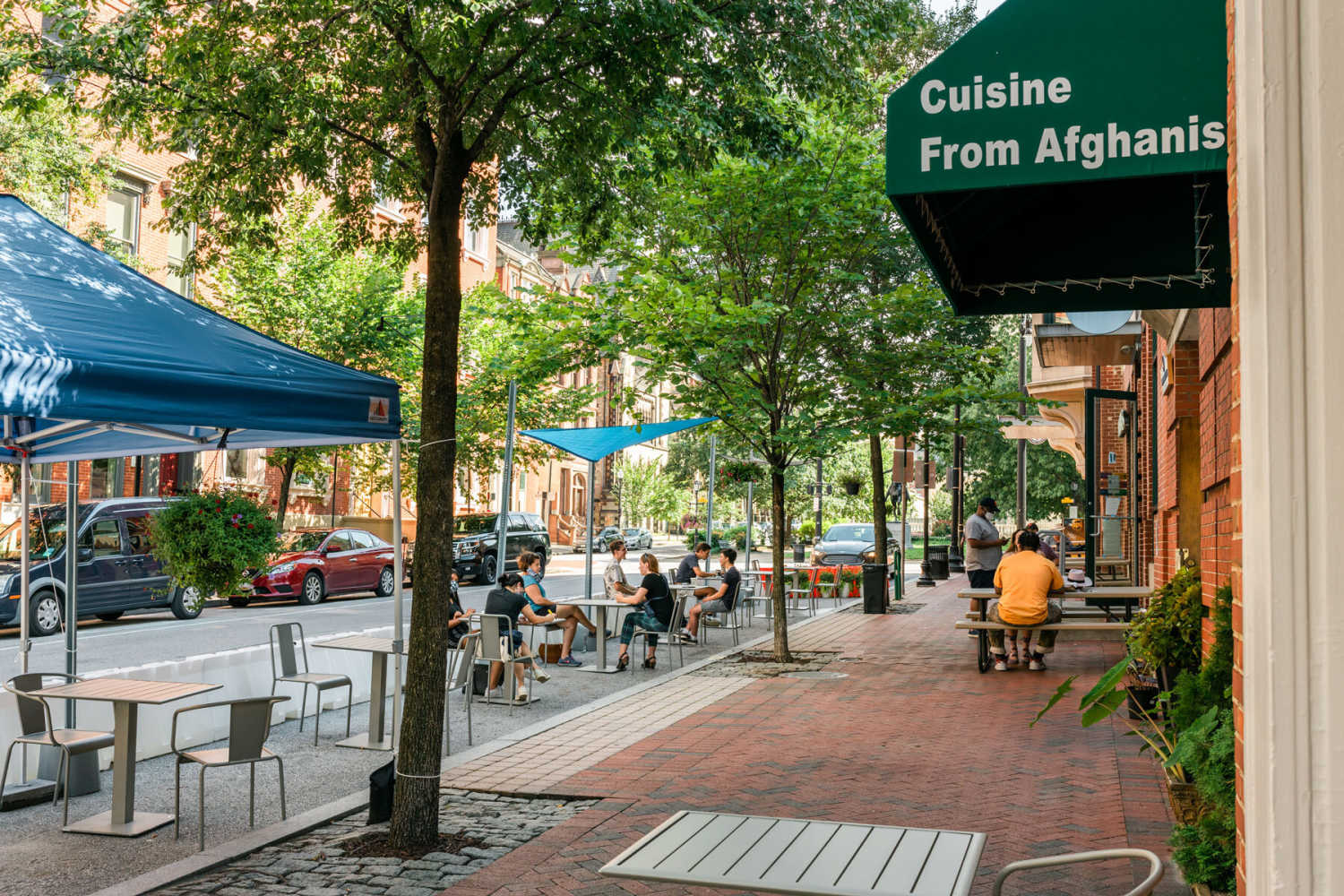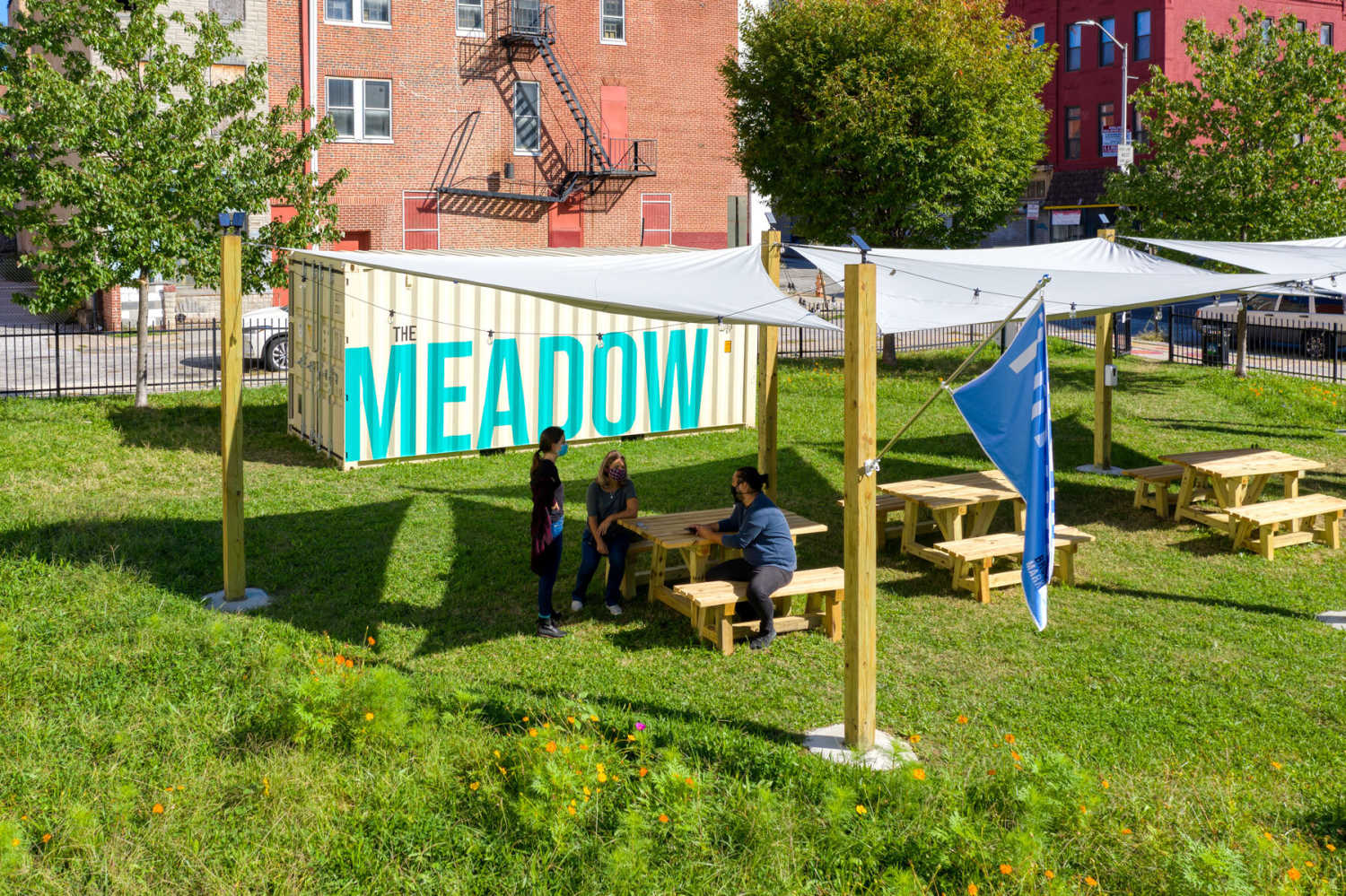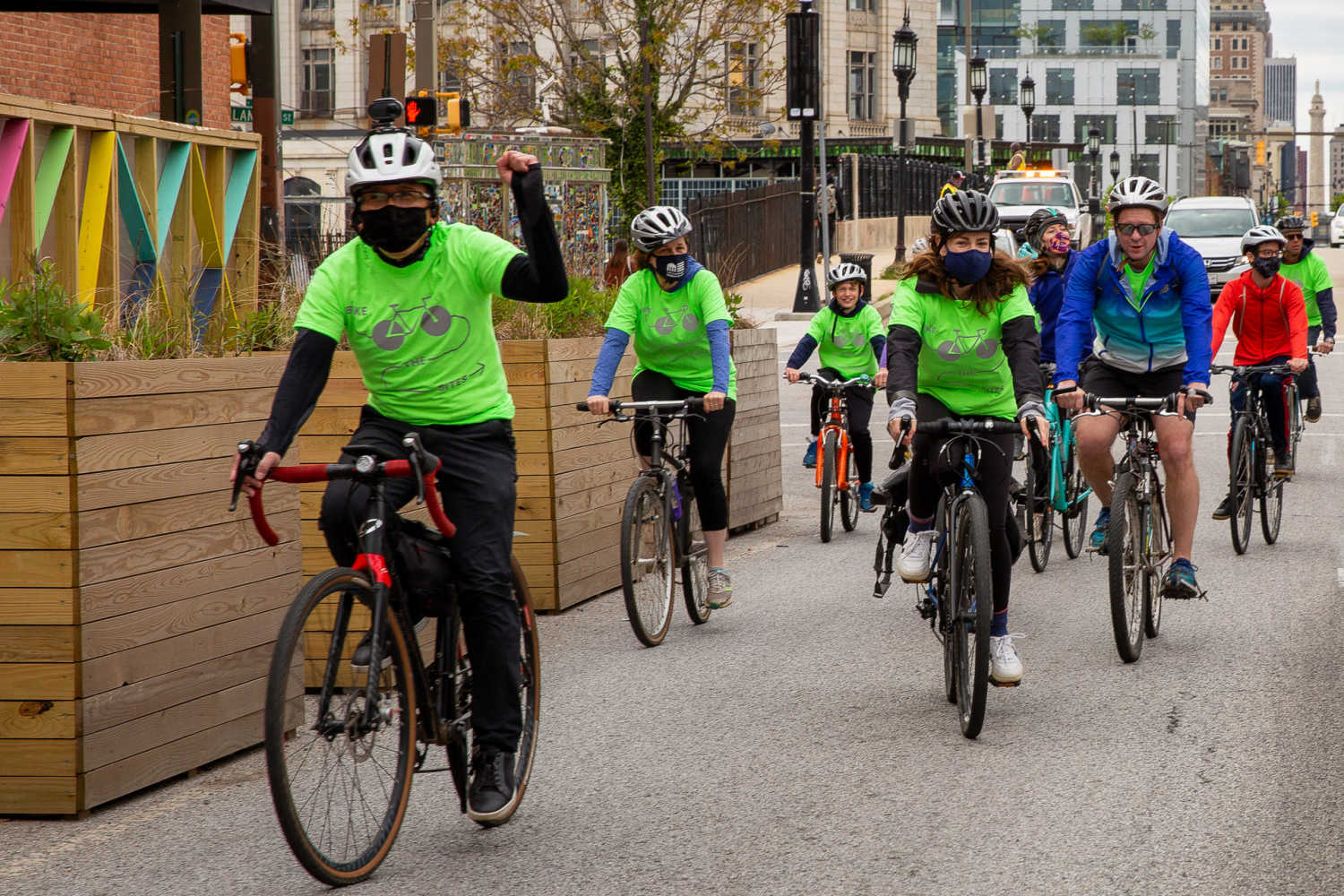Design For Distancing: Using Public Space Interventions to Invigorate Small Businesses
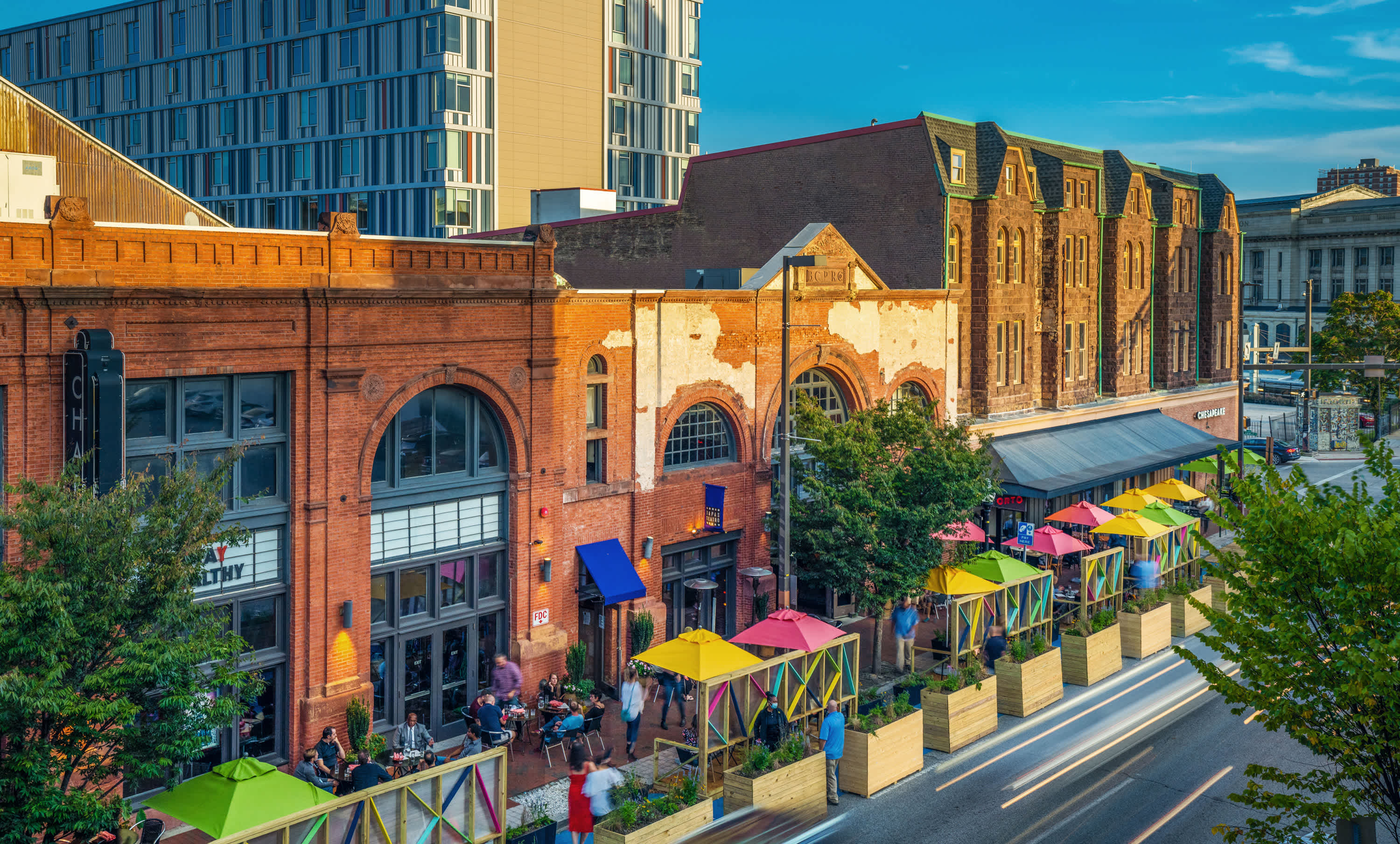
What We Did
- Co-design
- Space Planning
- Network Building
- Community Engagement
- Design Project Management Assistance
- Construction Management Assistance
Partners
- City of Baltimore
- Baltimore Development Corporation
- Johns Hopkins Bloomberg School of Public Health
Supporters
- Small Business Owners
- Design-build Groups
- Community Associations
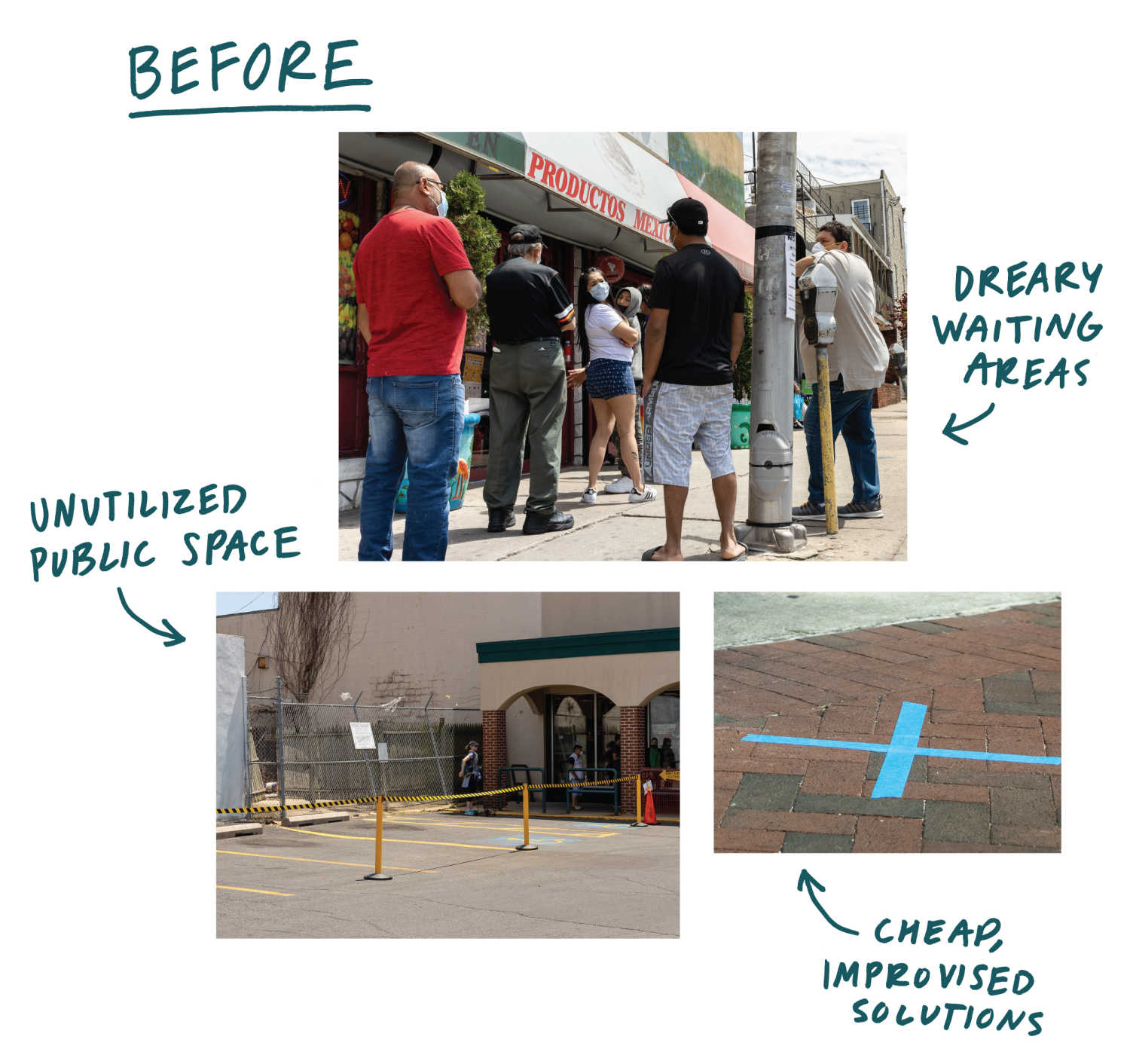
The Challenge: Rethink public space to support economic recovery.
In the spring of 2020, the Baltimore Mayor’s Office and Baltimore Development Corporation (BDC) created the COVID-19 Small Business Assistance Initiative, which established a $5.5 million fund to help businesses reopen without compromising public health.
$1.5 million was allocated for the Design for Distancing initiative to create social distancing interventions in Baltimore’s Main Streets, Arts Districts, and Retail Business License Districts.
NDC convened experts from the Bloomberg School of Public Health, the Department of Transportation, and local business, advocacy, and community development groups to develop a design brief informed by deep knowledge and lived experience.
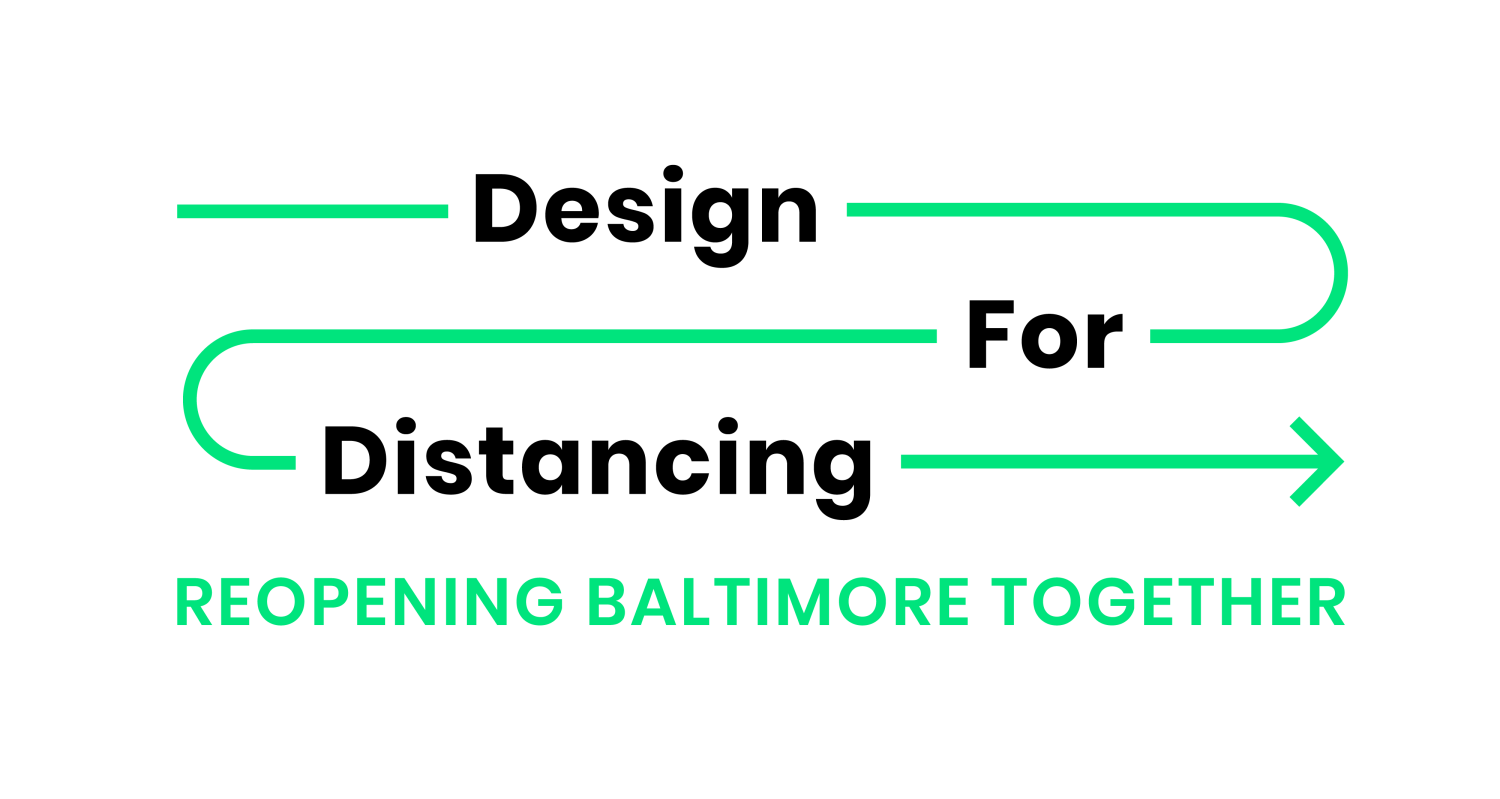
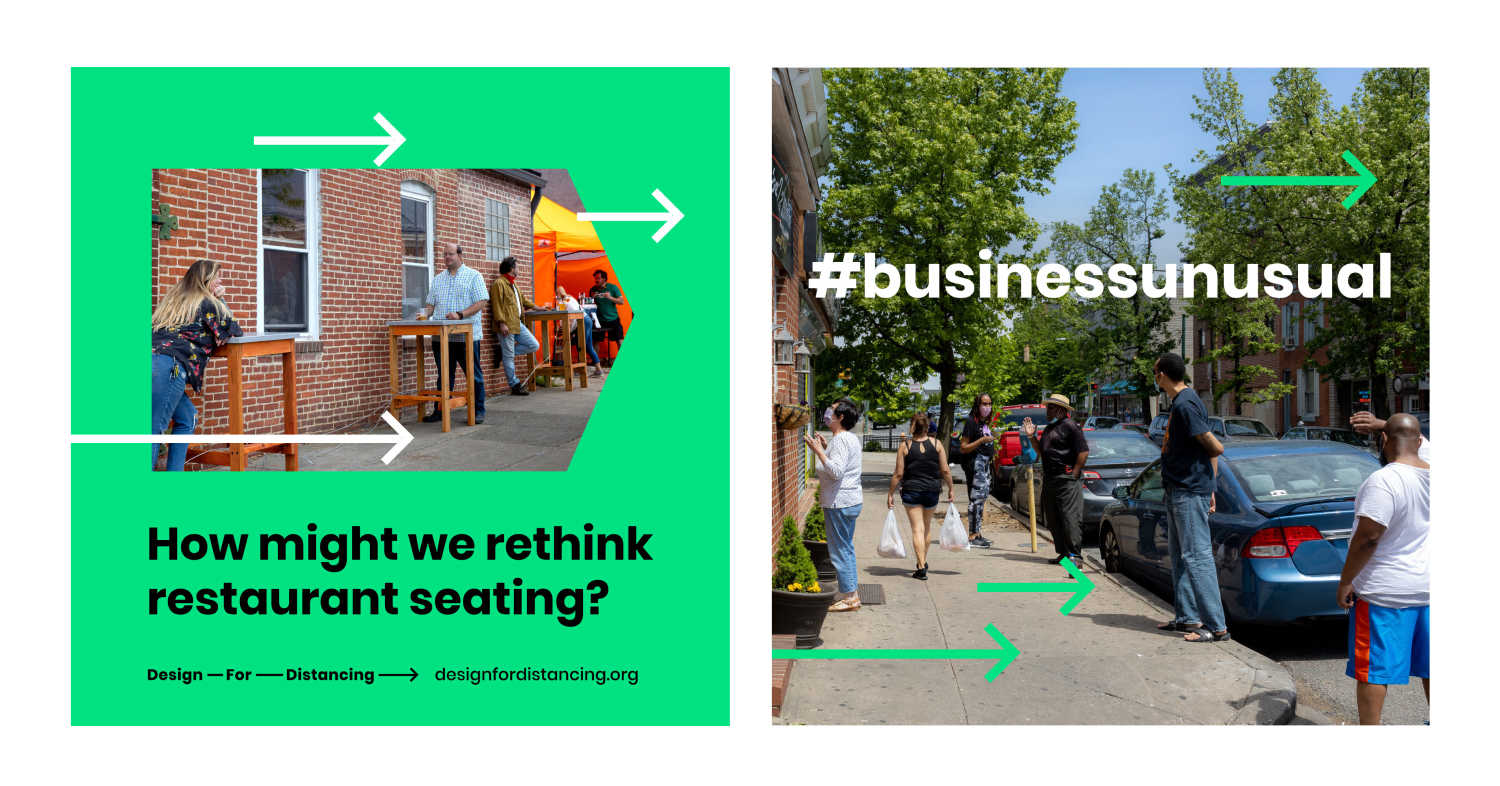
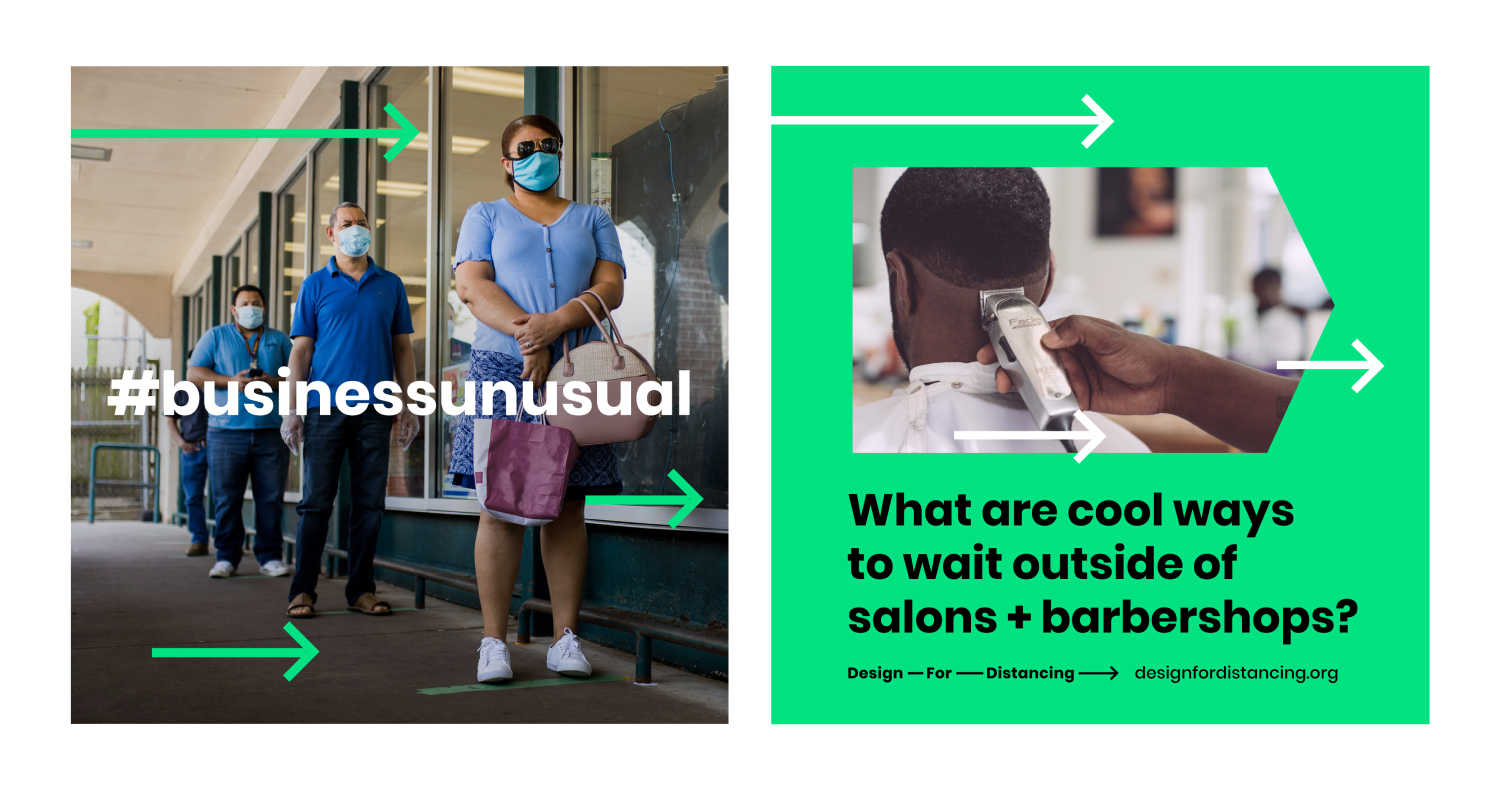
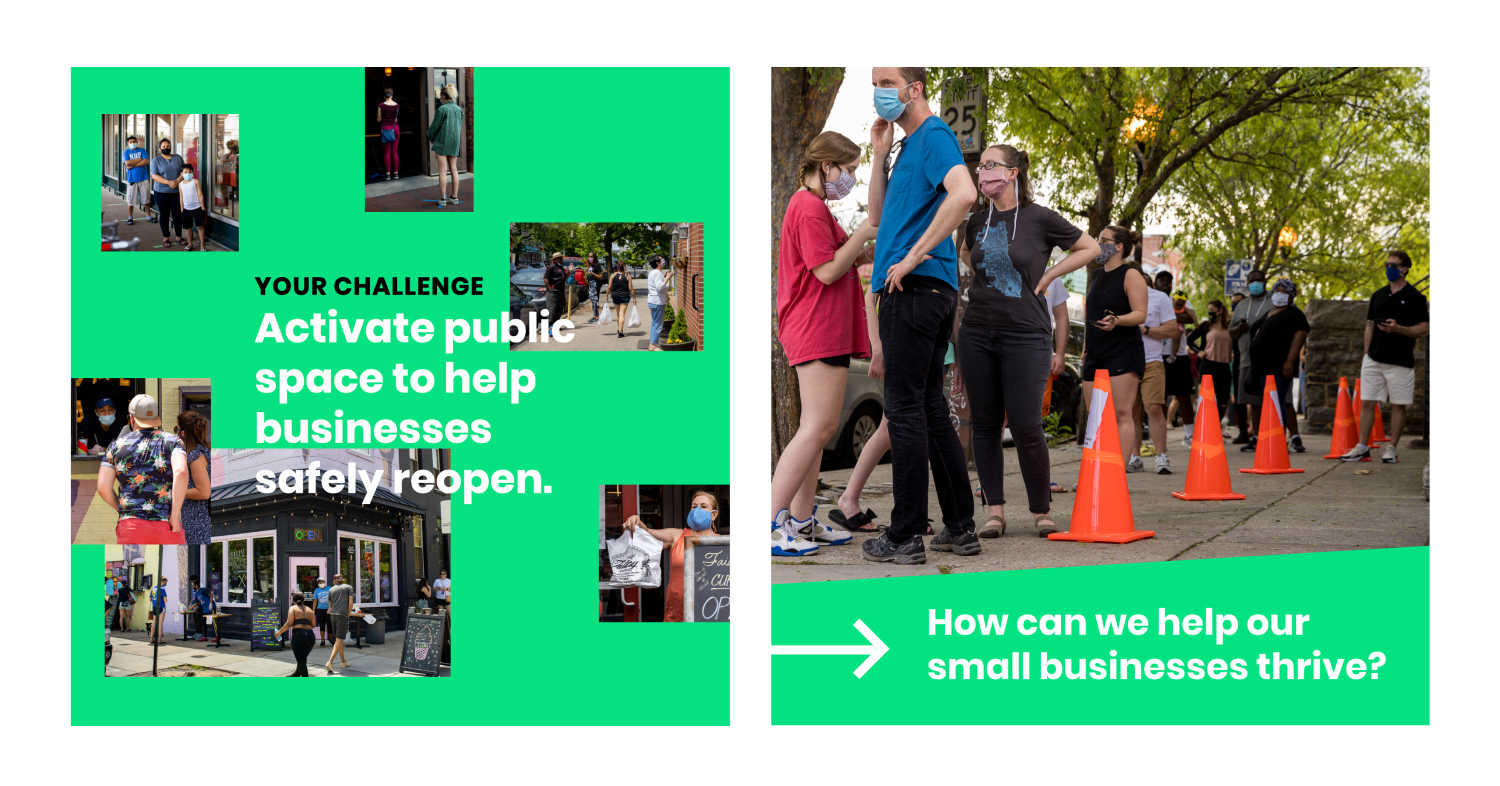
The Plan: Invite designers to submit concepts
The result was a fast-paced social media campaign and Ideas Competition, circulated around the world to architects, artists, and anyone with a good idea. From hand drawn sketches by children to professional renderings, we received 162 submissions!
Concepts were asked to be
Temporary
Low-cost ($30K—$100K to install)
Utilize sidewalks, closed streets, parking spaces, and vacant lots
Prioritize durable, sustainable materials and construction methods
Be inclusive, equitable, and adaptable to different communities
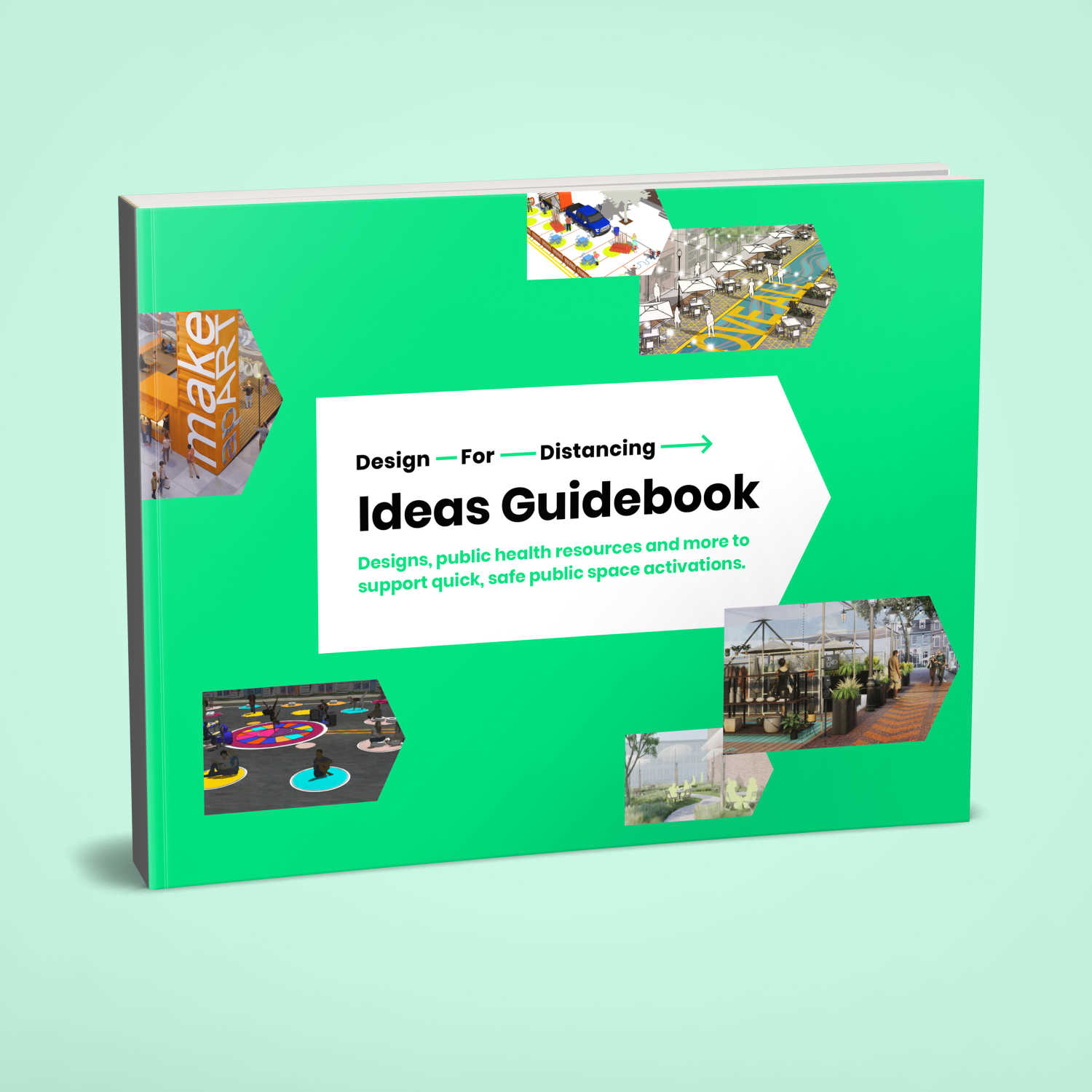
The Vision: Publish the best ideas online
A review panel of experts and community leaders voted on concepts, ultimately selecting ten. These ten design teams were each awarded a $5,000 stipend, and partnered with the Neighborhood Design Center to quickly finalize their exceptional interventions.
These public space plans were shared on the Design for Distancing website.
Free to view and download, the Ideas Guidebook encourages others to reference, adapt, and install these ideas in their own city.
“This Guidebook is Baltimore’s gift to the world, and we hope it will be a valuable resource to areas far beyond our city.”
— Mayor Bernard “Jack” C. Young, City of Baltimore, 2020
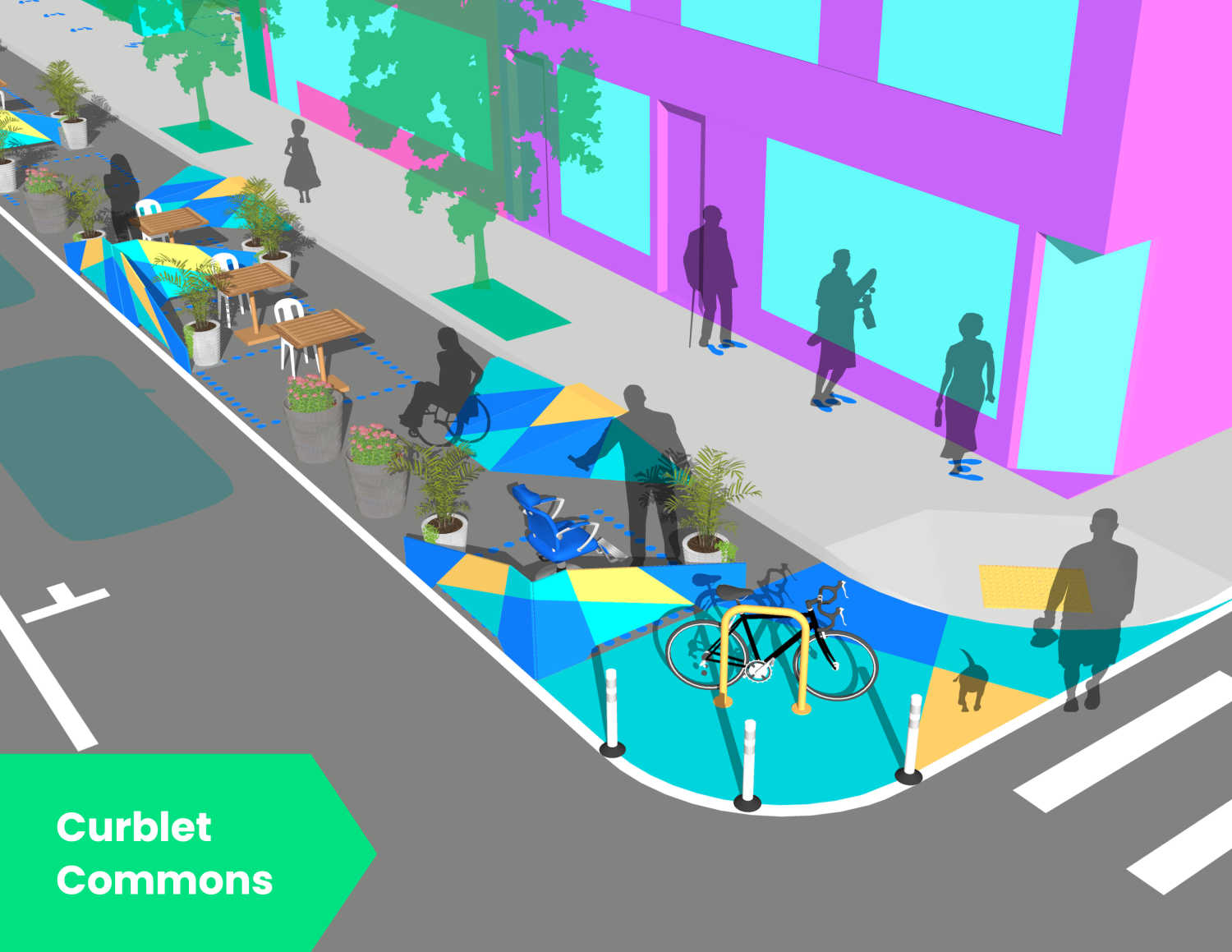
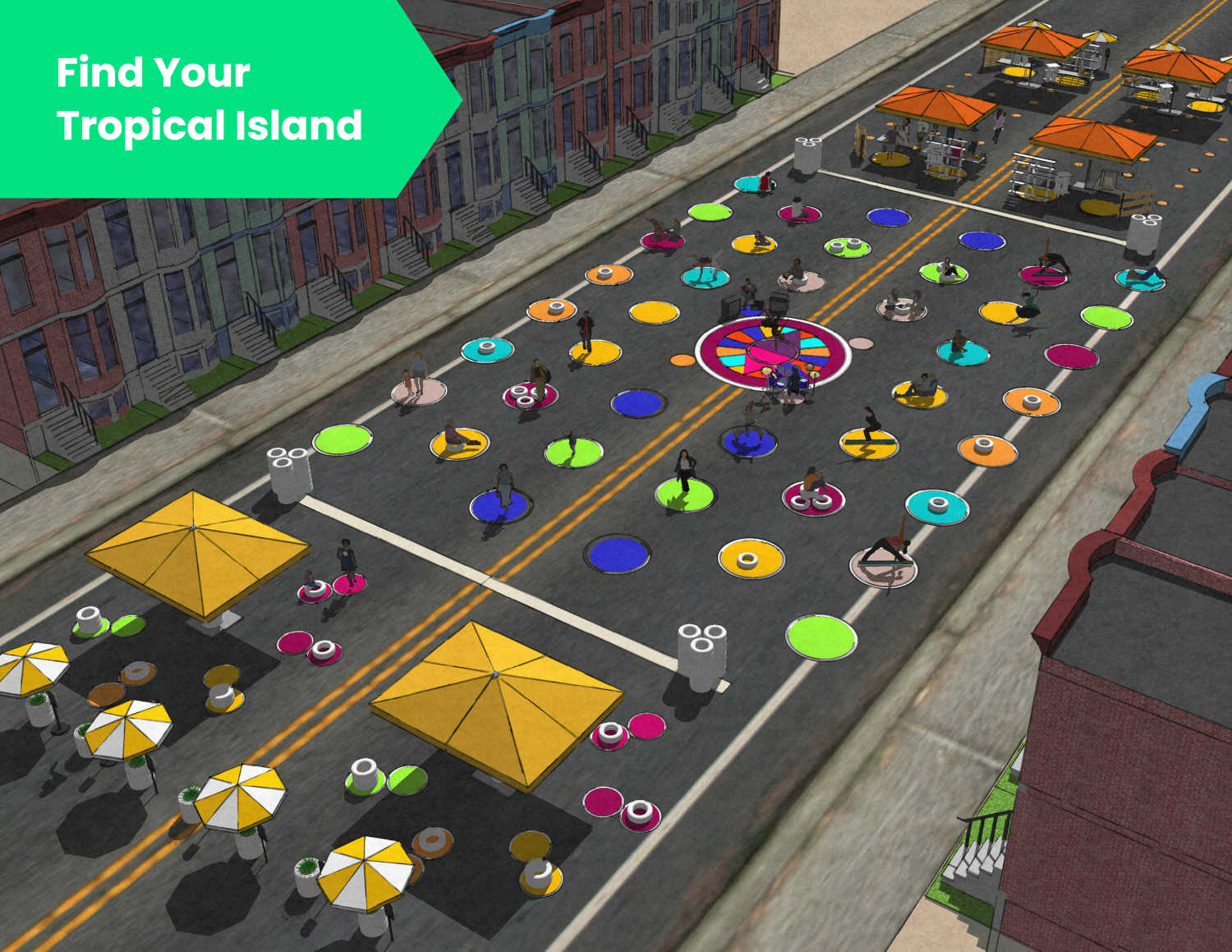
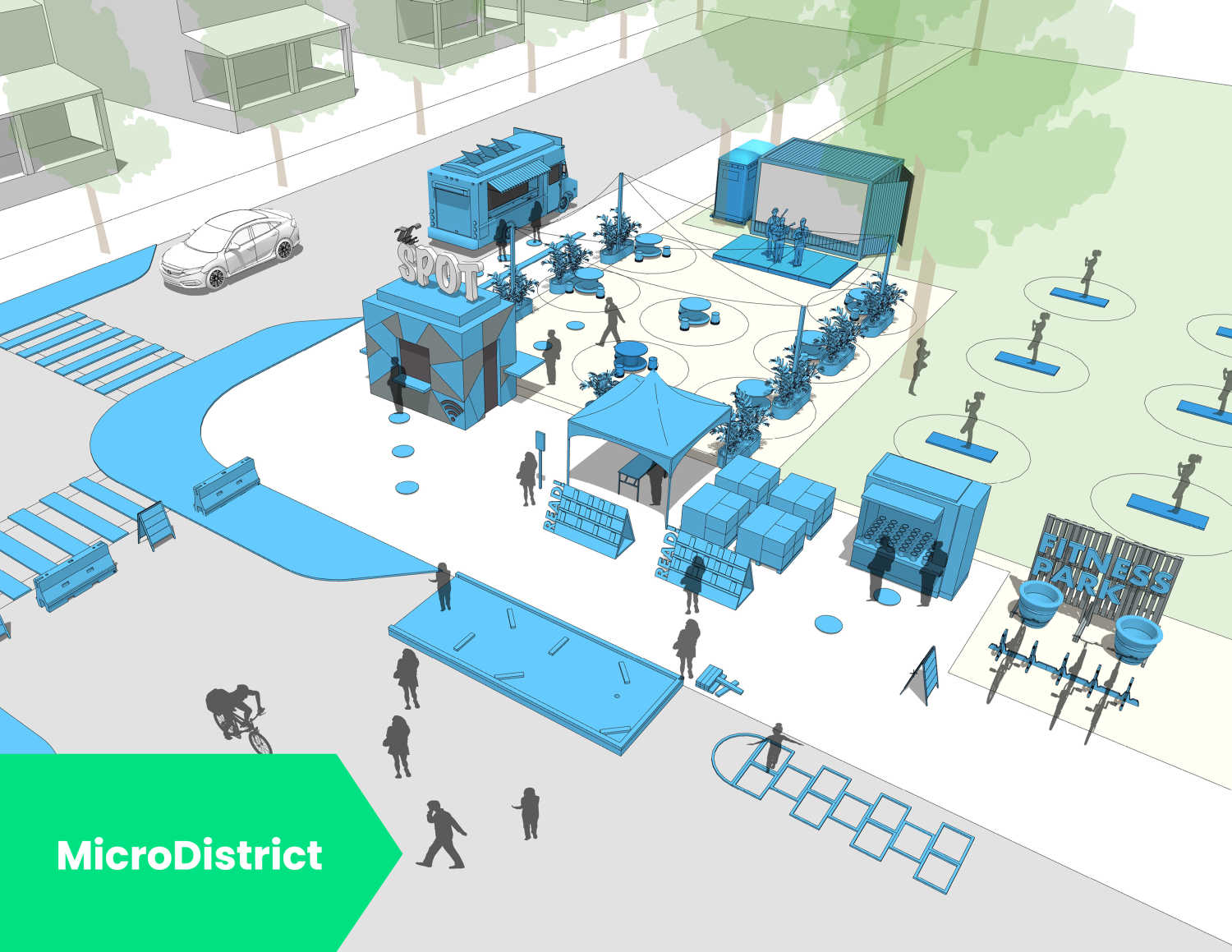
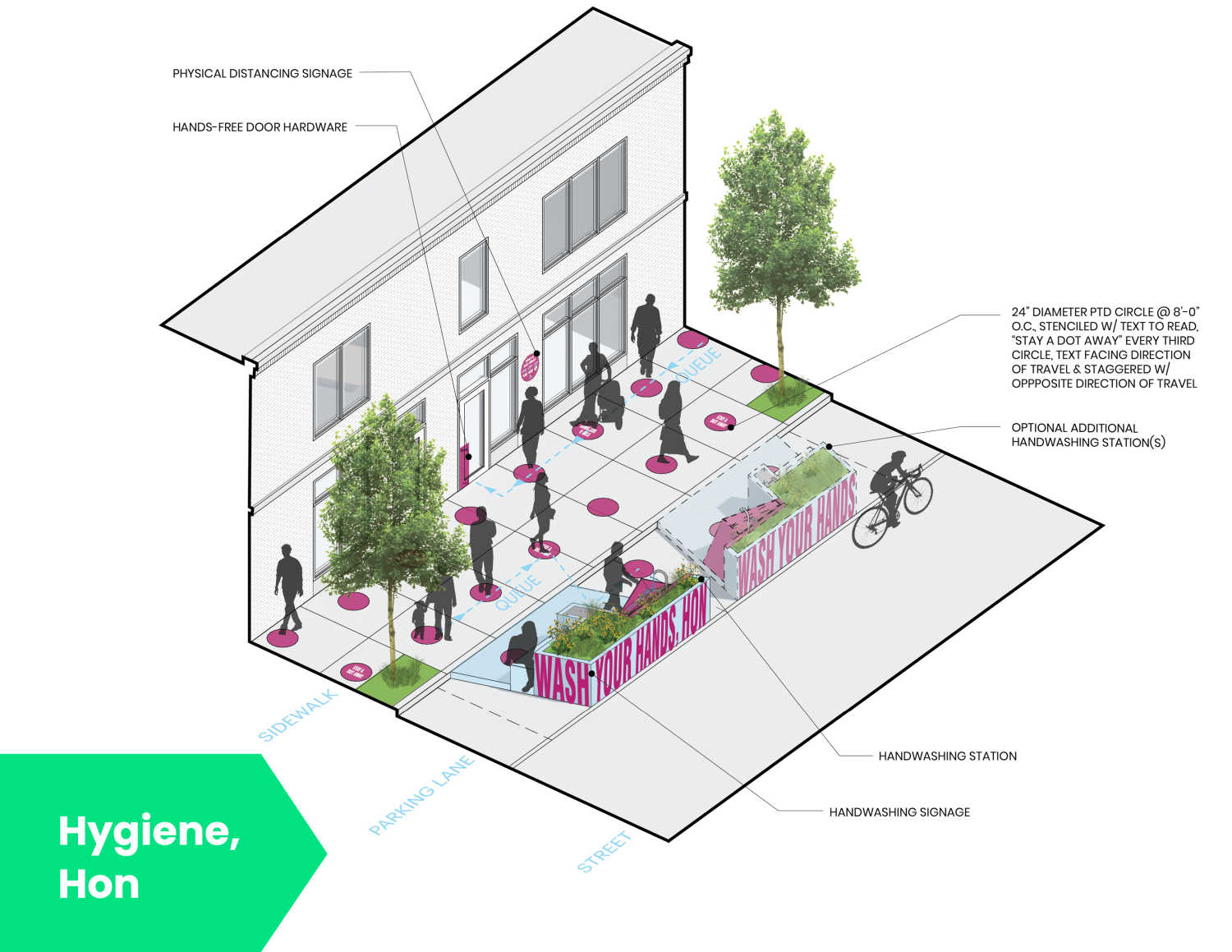

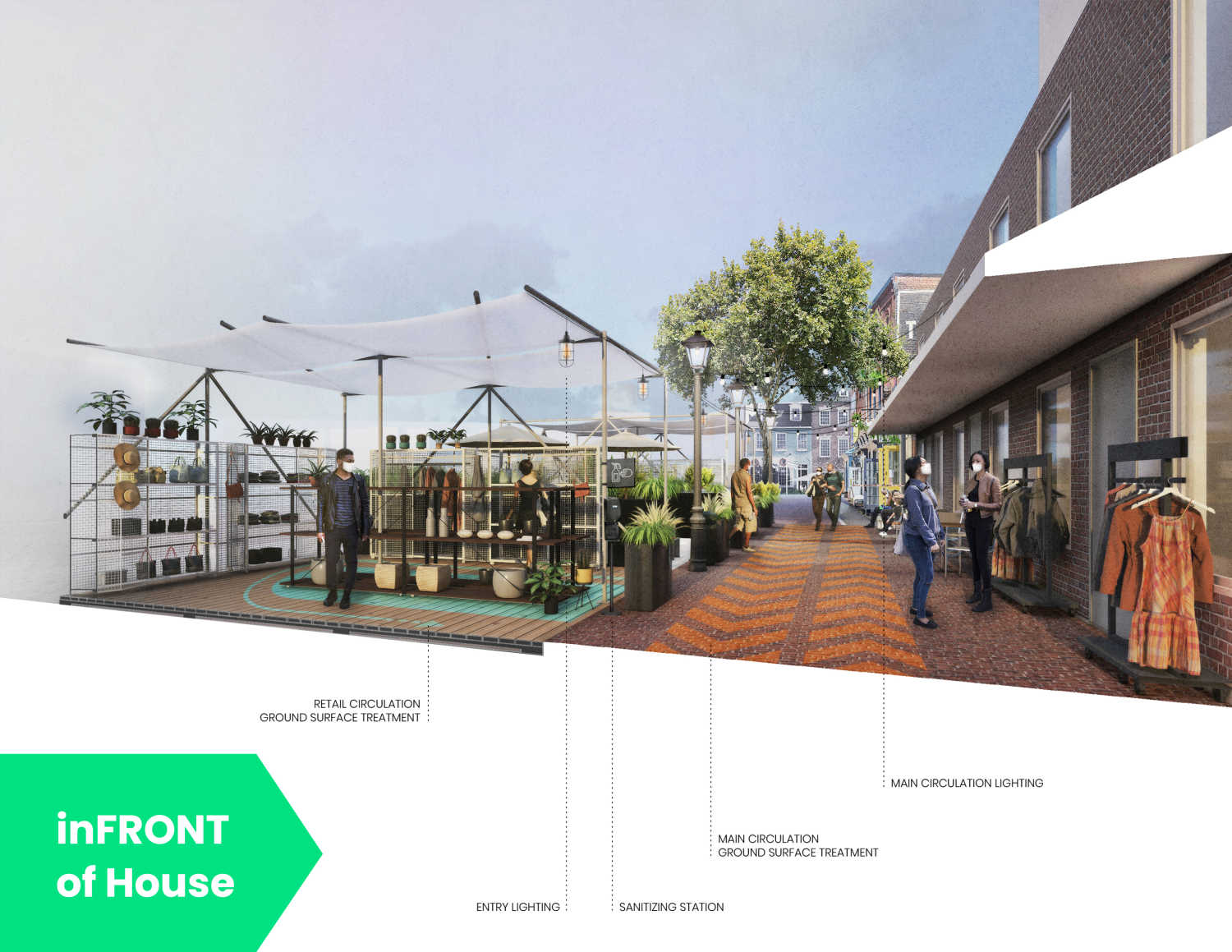
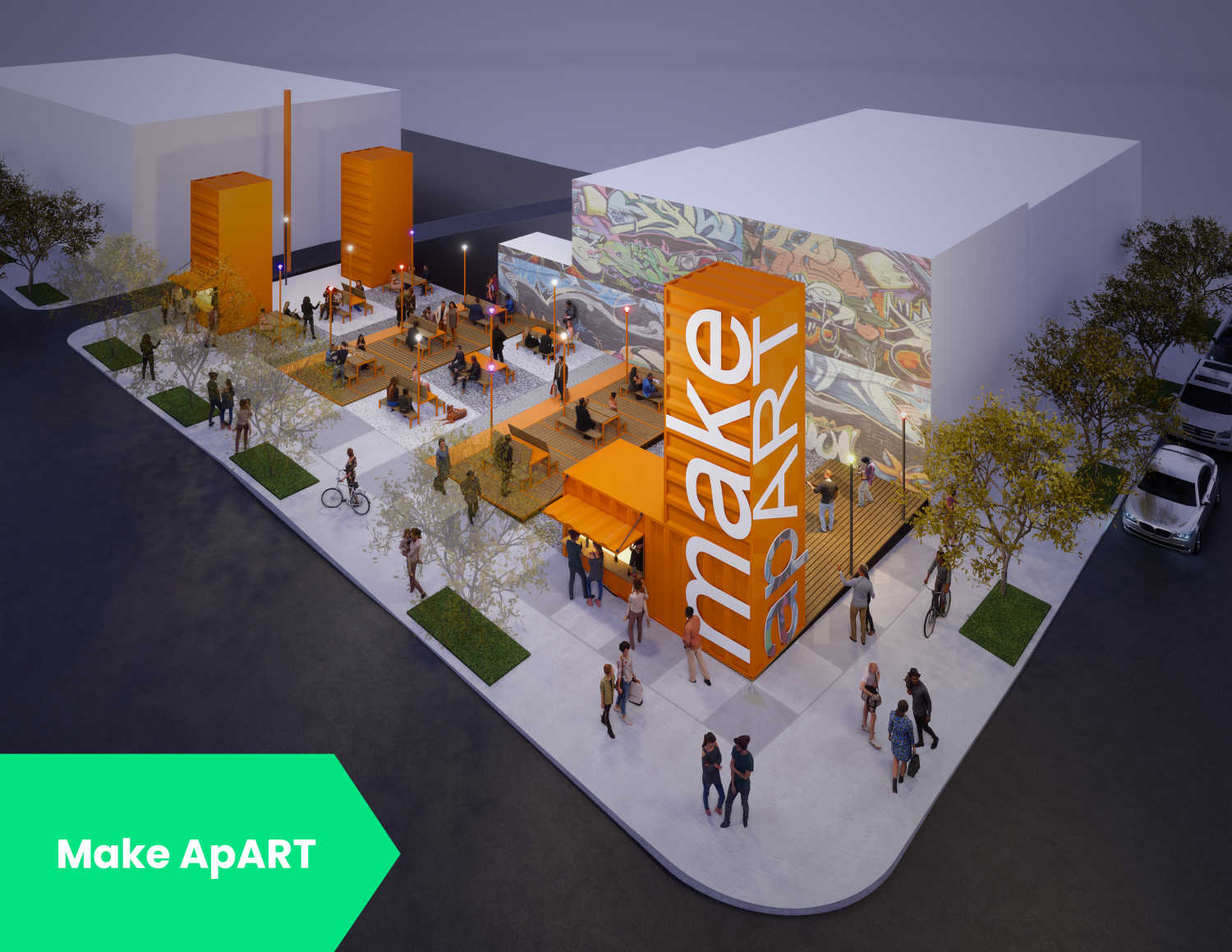
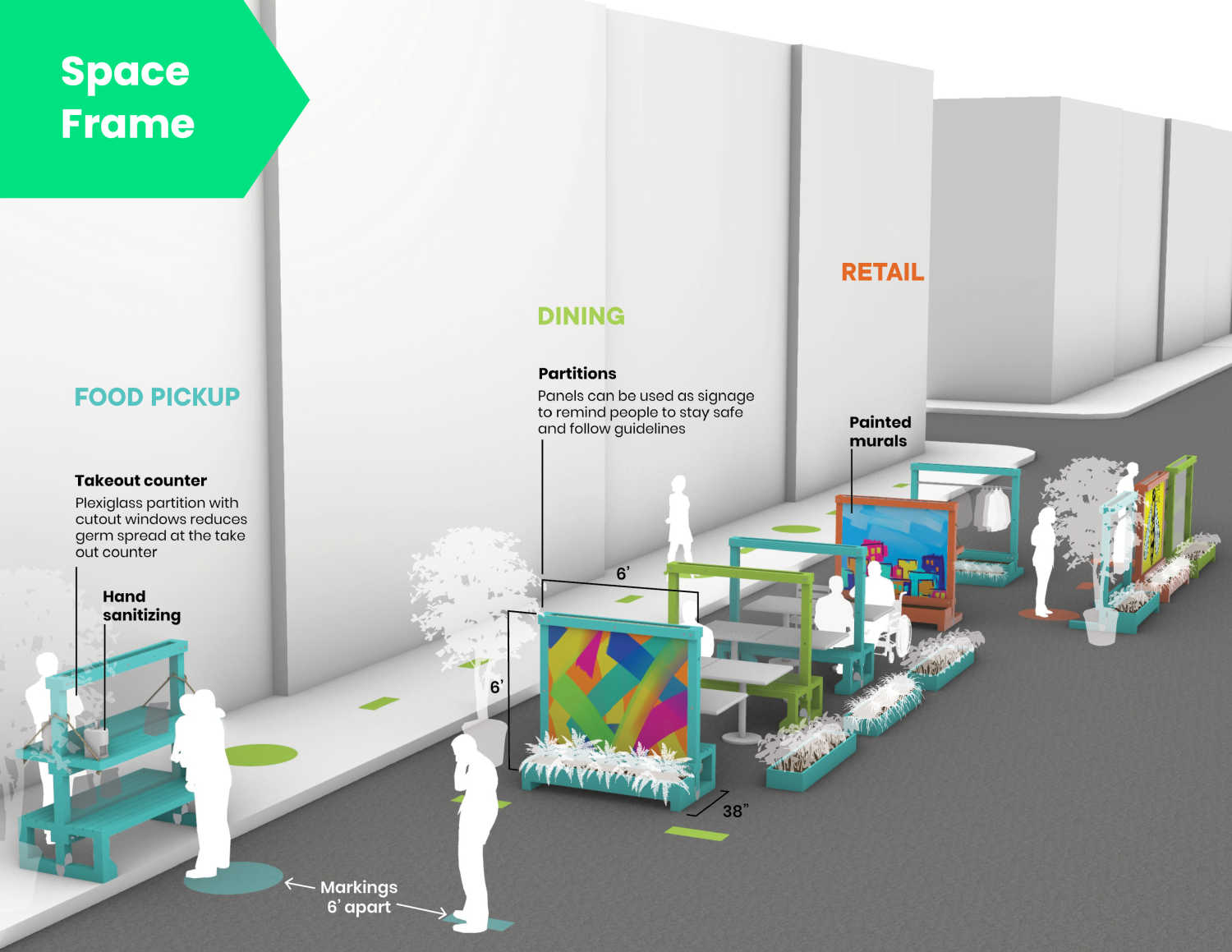
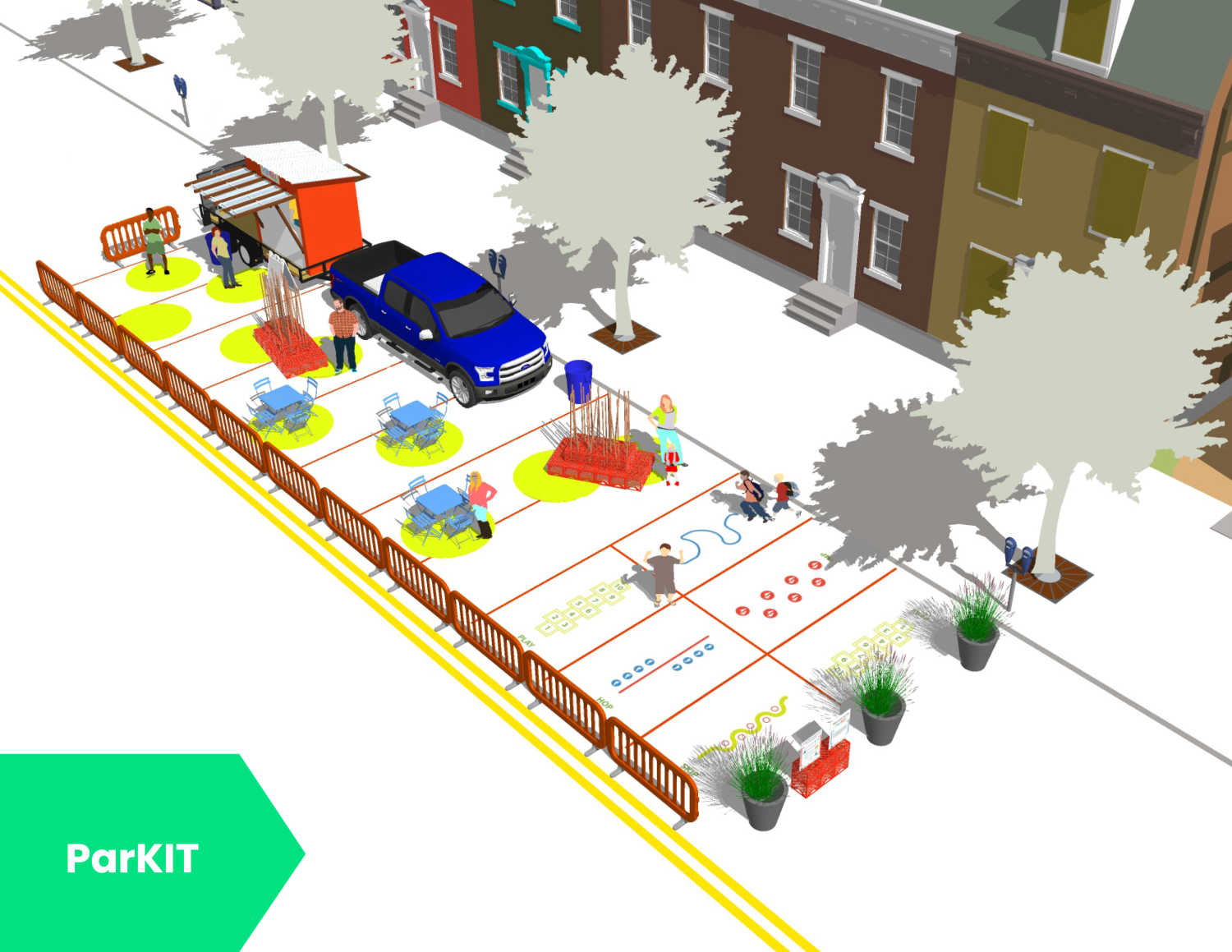

An equity-focused approach
The Ideas Guidebook includes more than just the selected plans. Our Neighborhood Design Center staff wrote it to have everything a potential build team might need to get started — building resources, health guidelines, reading recommendations, and more.
Perhaps most importantly, the guide talks about ways to make the process inclusive by employing principles of co-design.
At the Neighborhood Design Center, we’ve had over 50 years to hone our people-centered, equity-focused approach, and try to help others account for racial equity, multilingual and differently abled users, and the complexities of approval and implementation.
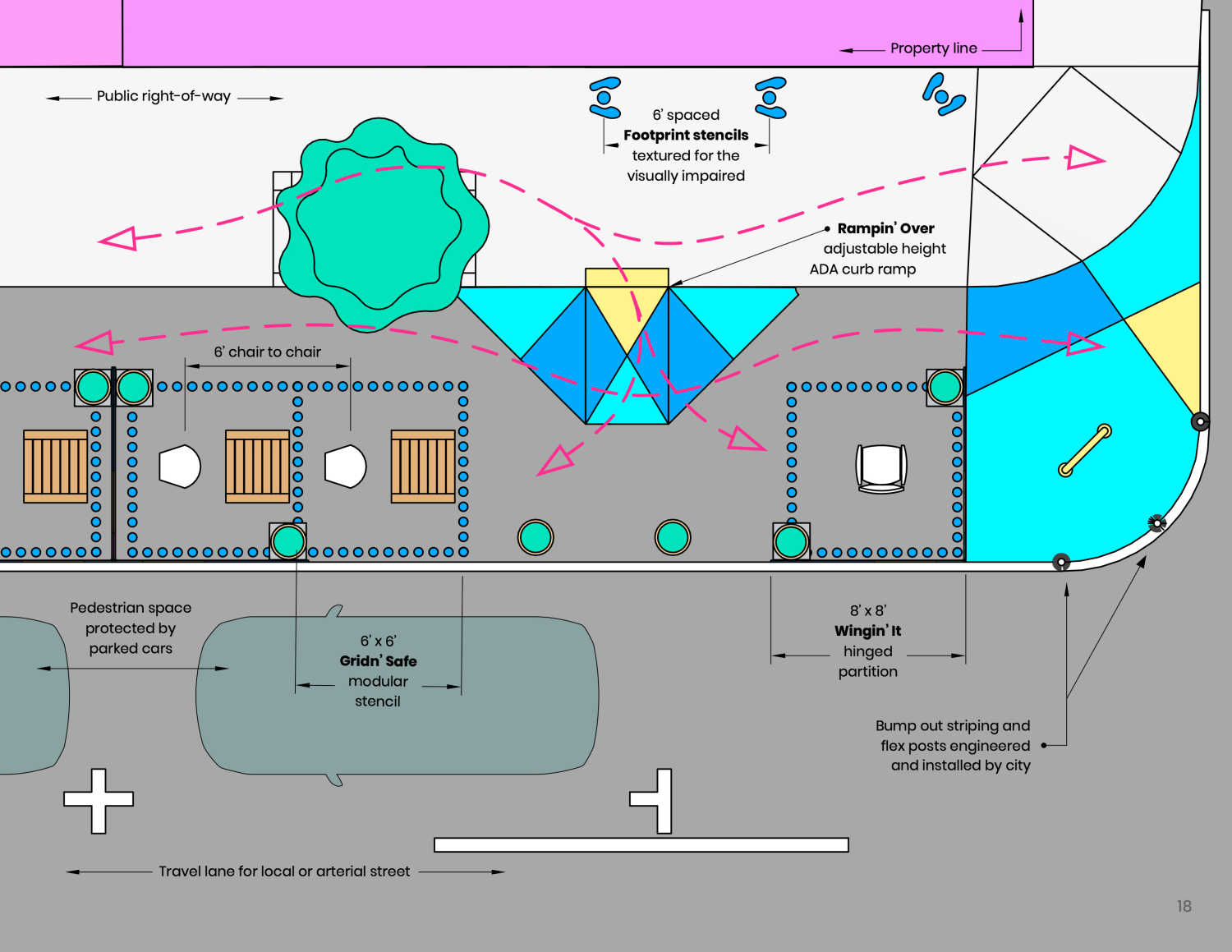

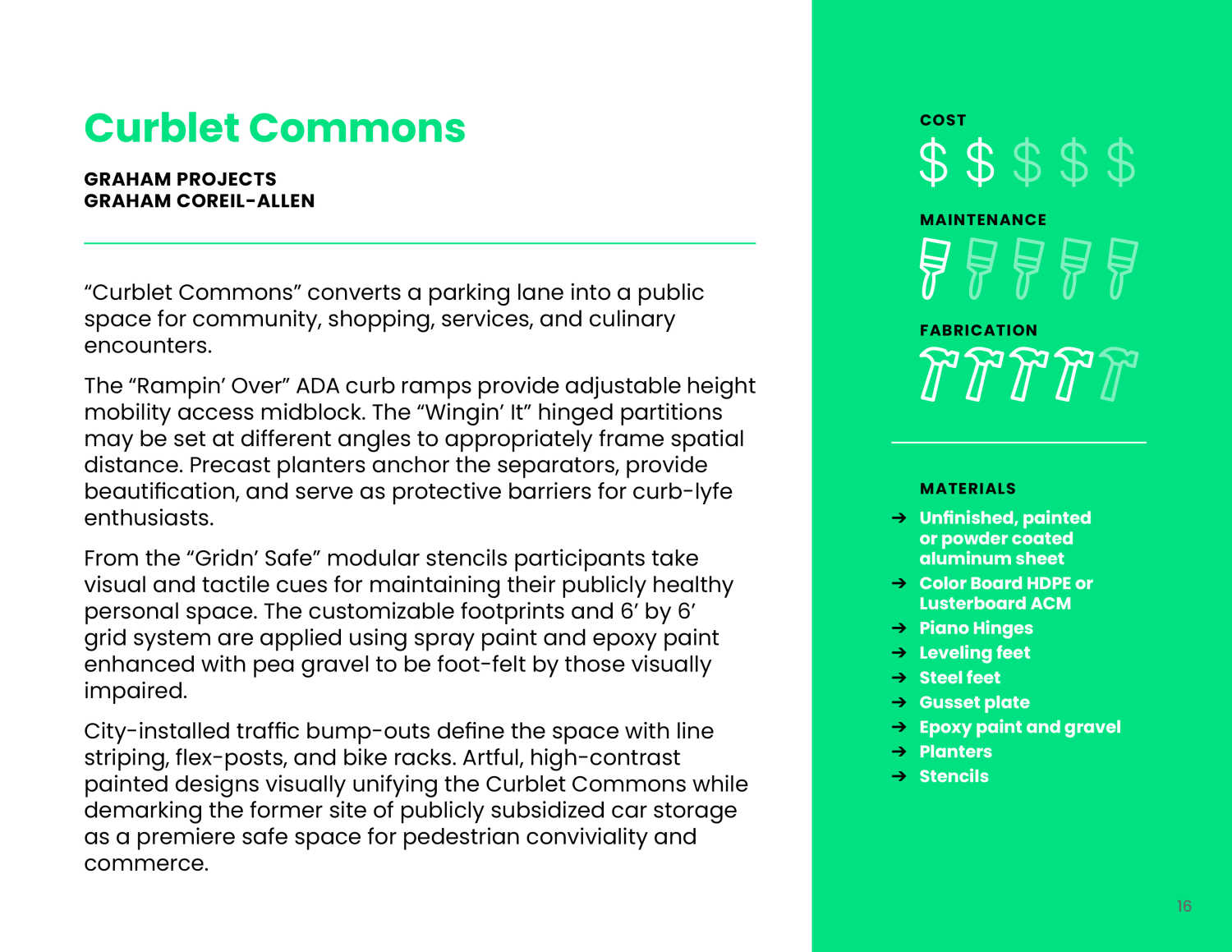
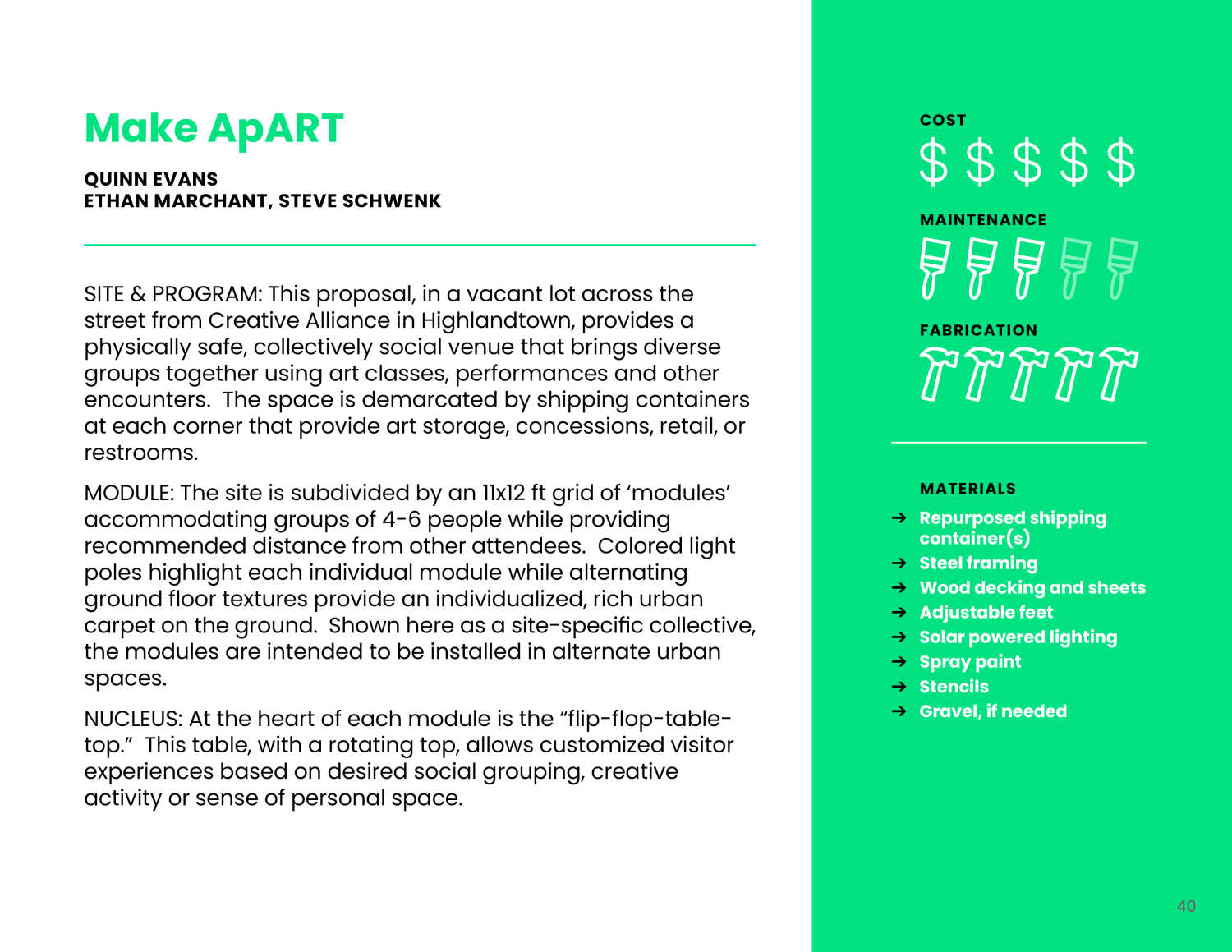
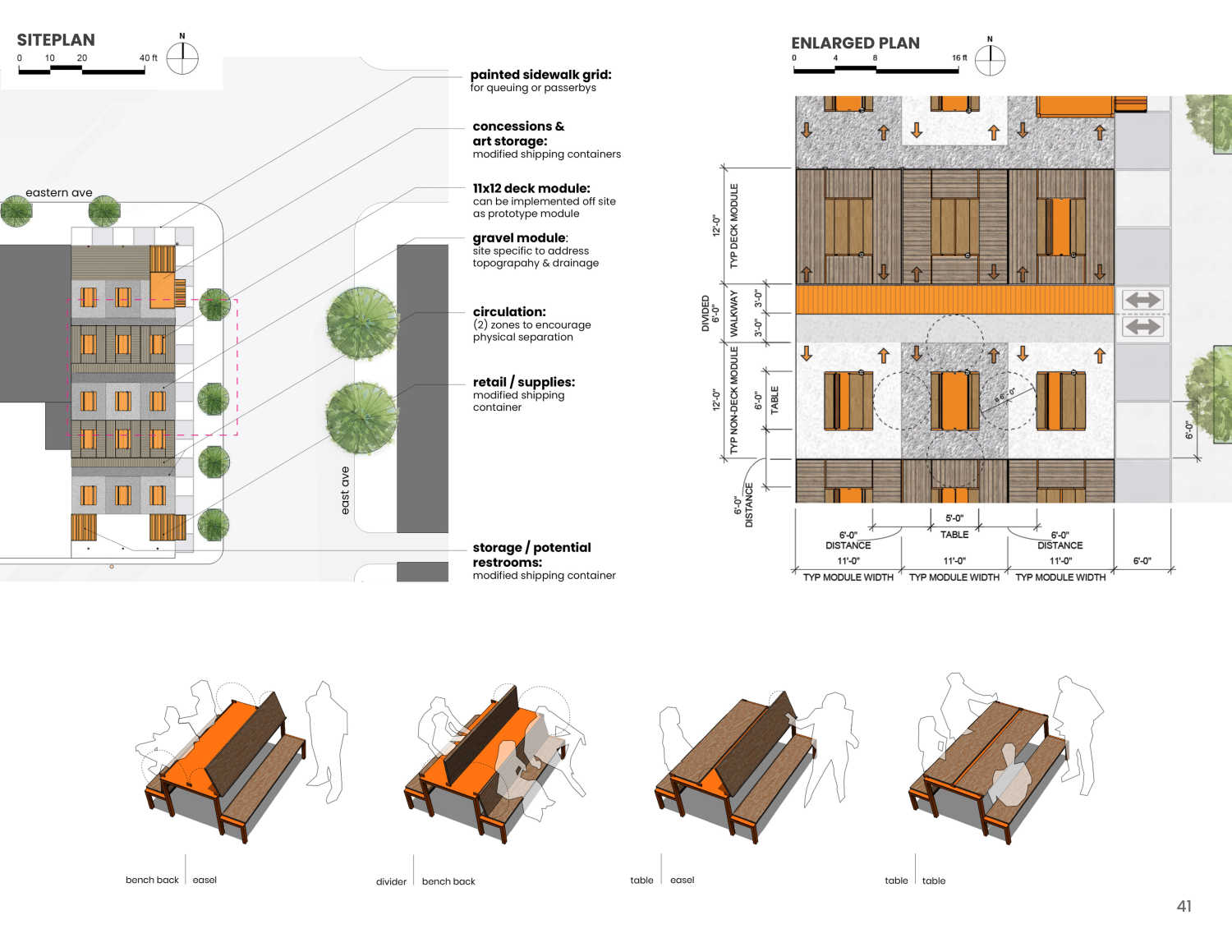
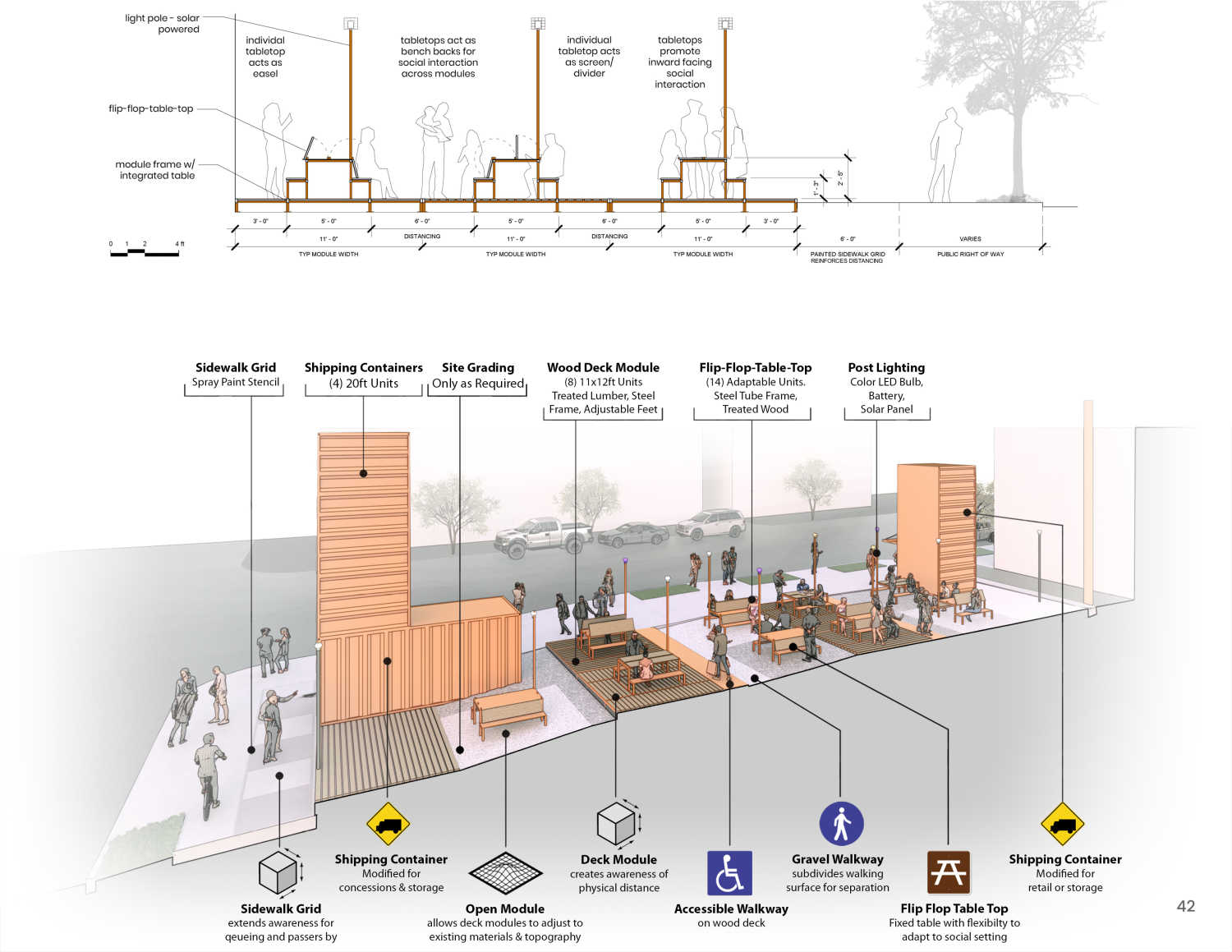
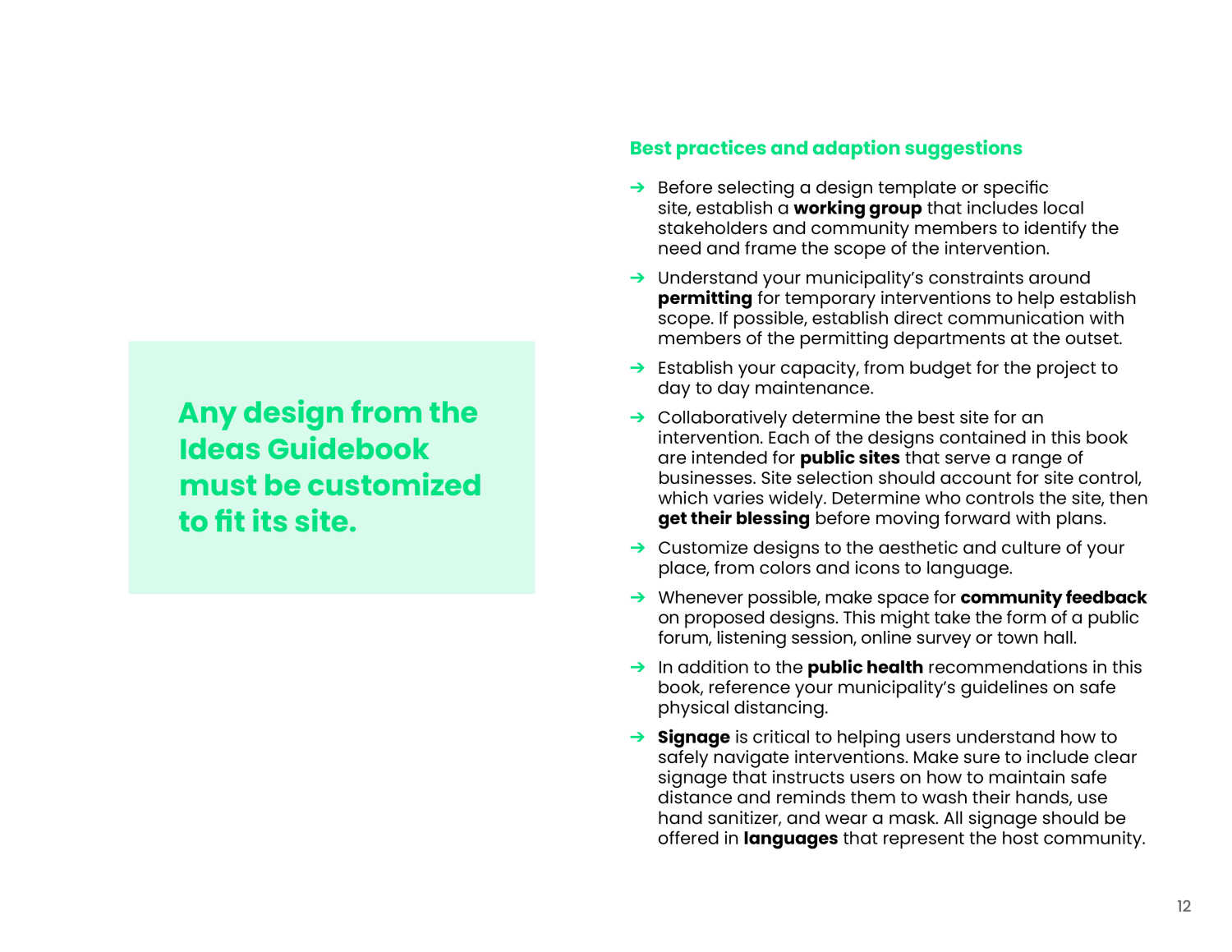
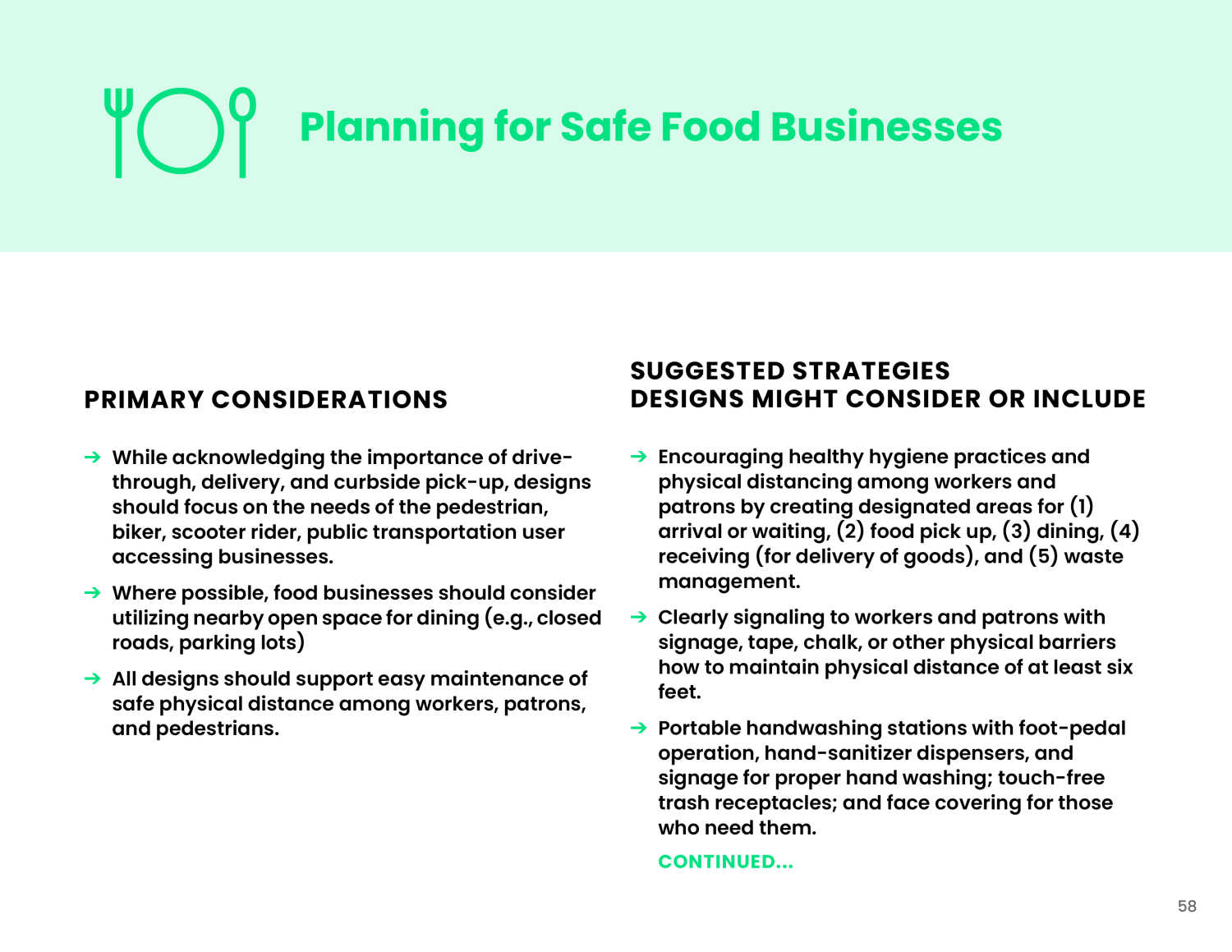
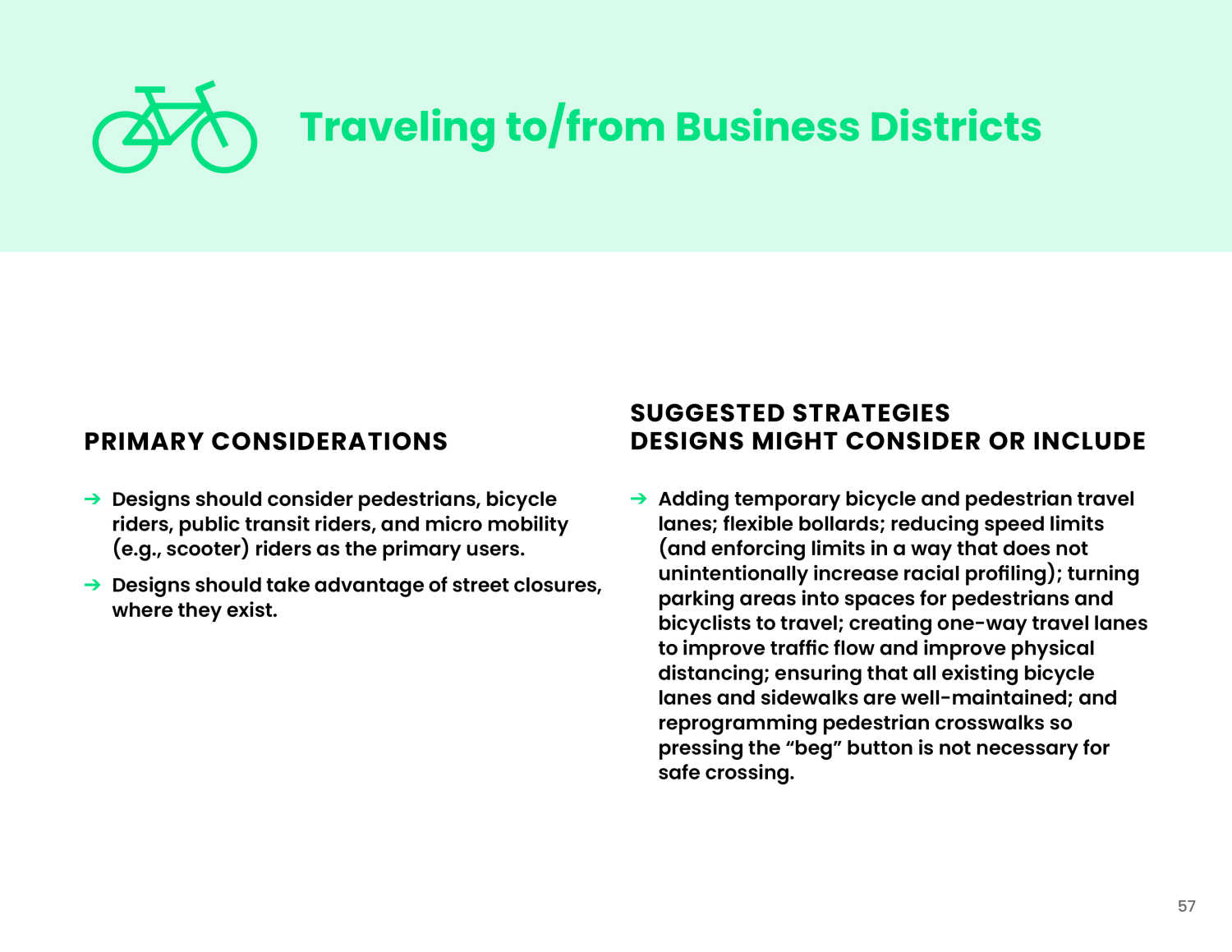
“This Guidebook talks about how we can have principles that prioritize communities of color and communities that have been disinvested. It is a tremendous opportunity to center equity and public health in how we rethink public spaces.”
— Keshia Pollock Porter, professor at the JHU Bloomberg School of Public Health
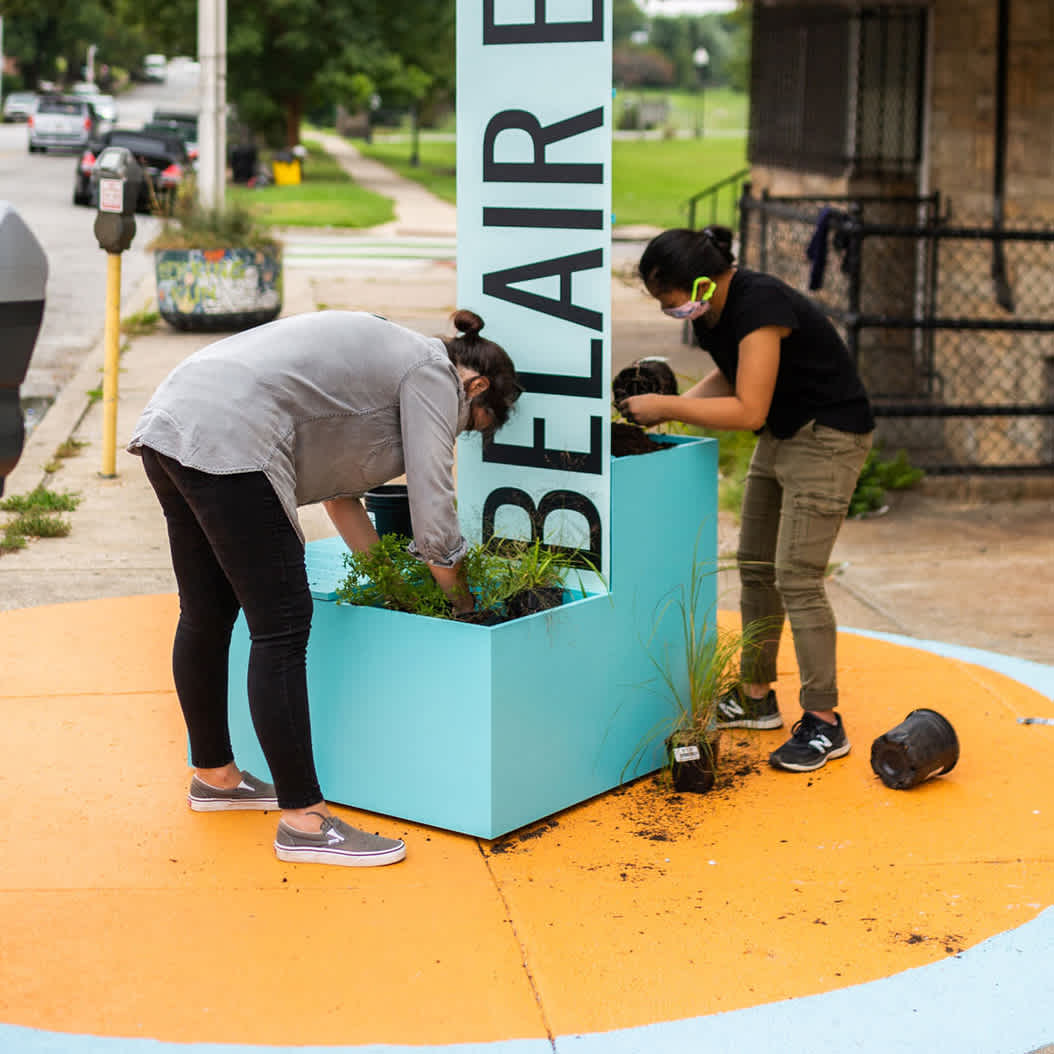
The Build: Implement custom plans throughout Baltimore
Business districts were paired with a local design-build team to scope, develop, and implement custom interventions, unique to each location.
Each team was offered a stipend and worked closely with NDC members and district leaders. Construction was funded and managed through BDC, with the Neighborhood Design Center supporting project management, design, and volunteer teams.
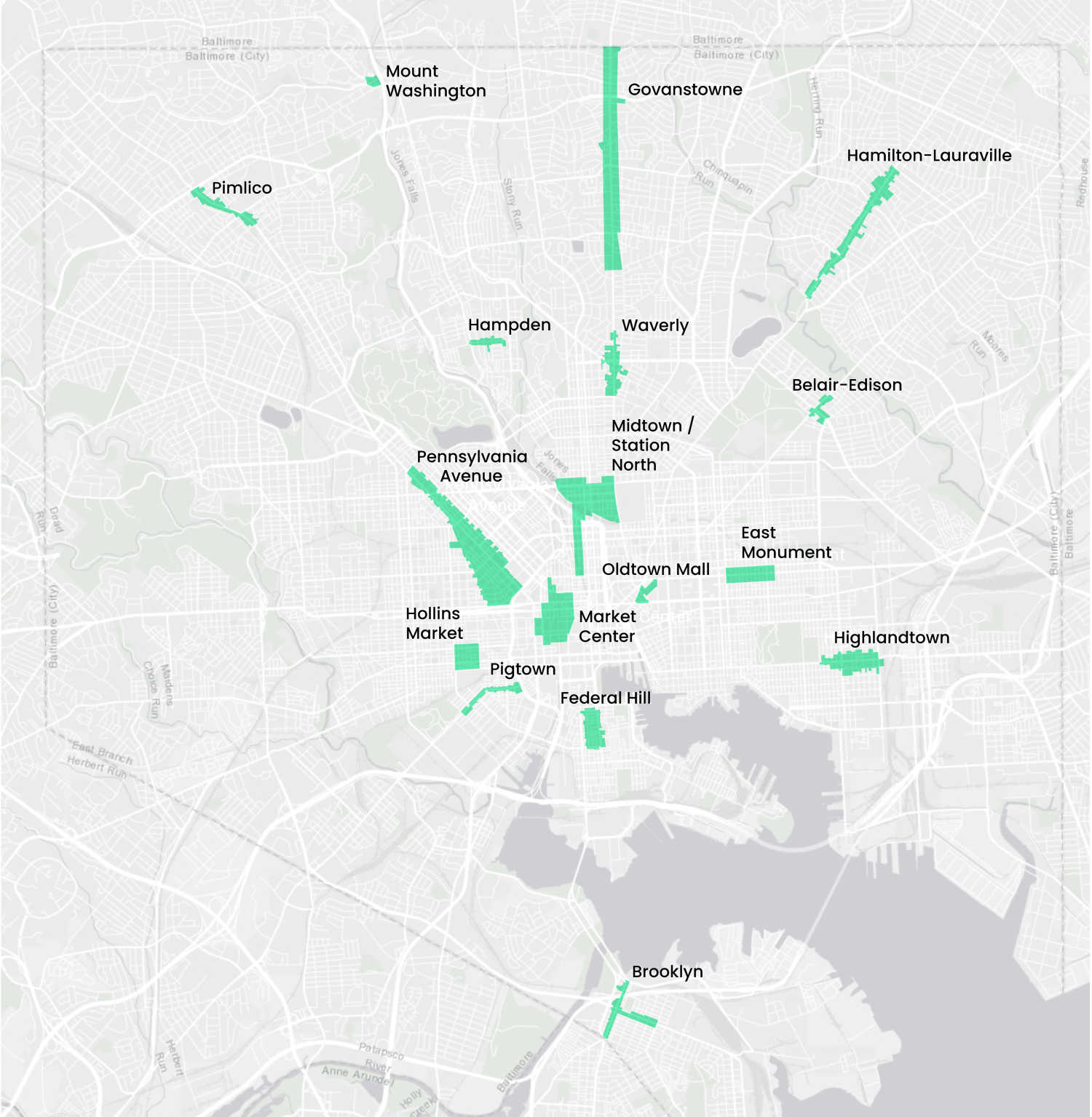
17 participating districts
Participating districts included: Belair-Edison, Brooklyn, East Monument Street, Federal Hill, Govanstowne, Hamilton-Lauraville, Hampden, Highlandtown, Hollins Market, Market Center, Midtown/Station North, Mount Washington, Oldtown Mall, Pennsylvania Avenue, Pigtown, Pimlico, and Waverly.
“We really have to go another few miles just to make sure that we don't lose an entire generation of small businesses and local investment to the pandemic.”
— Elaine Asal, Architectural Designer at Gensler
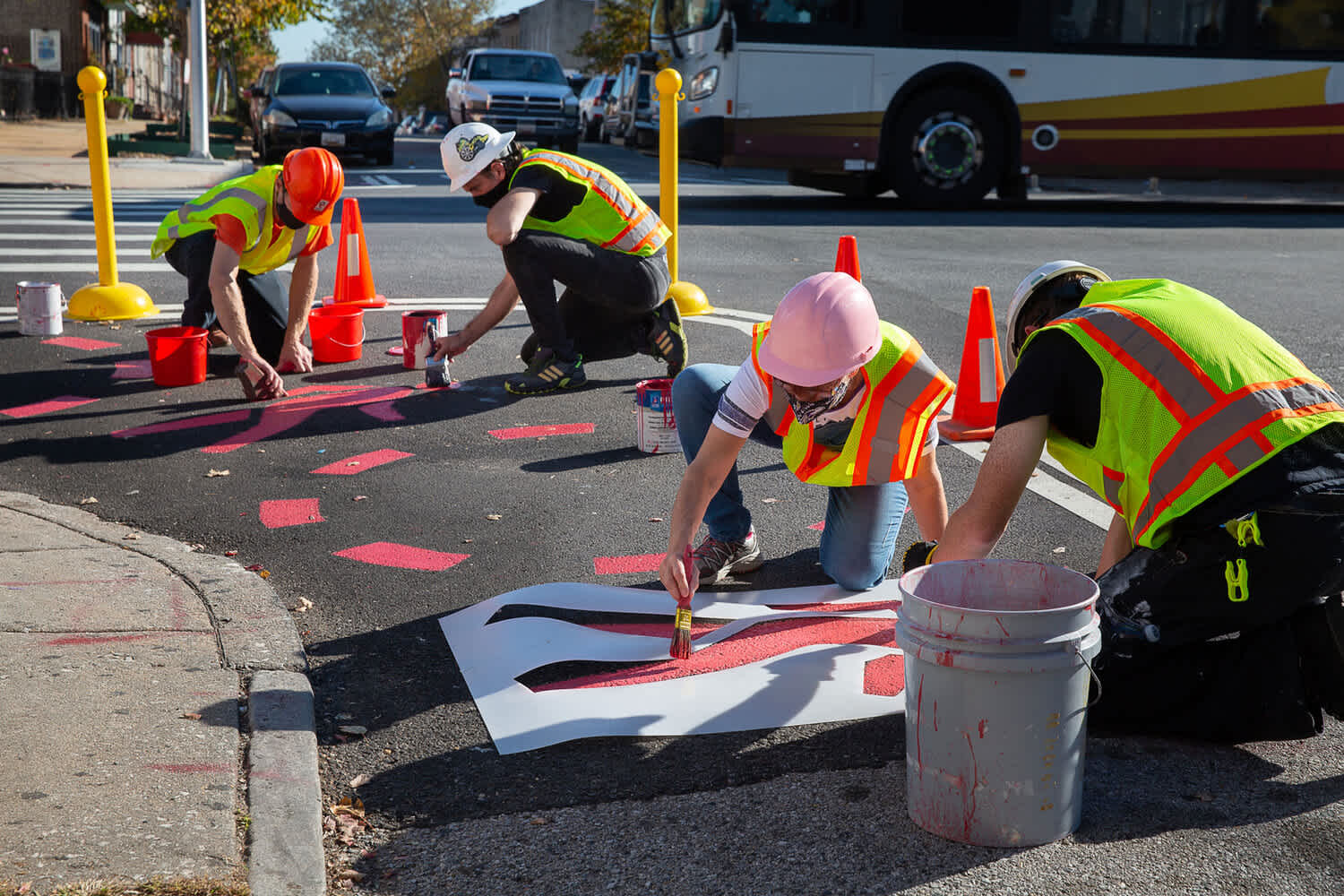
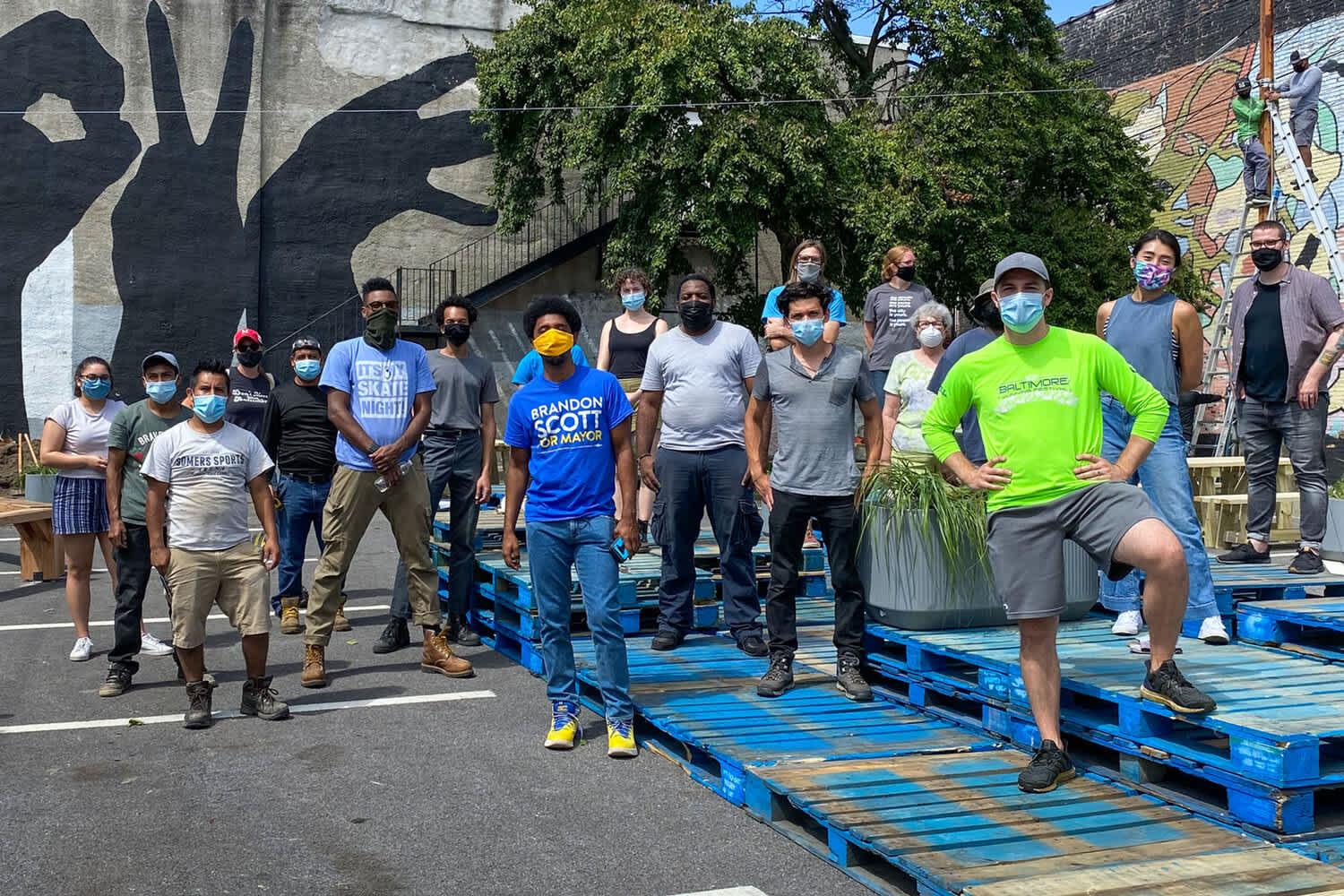
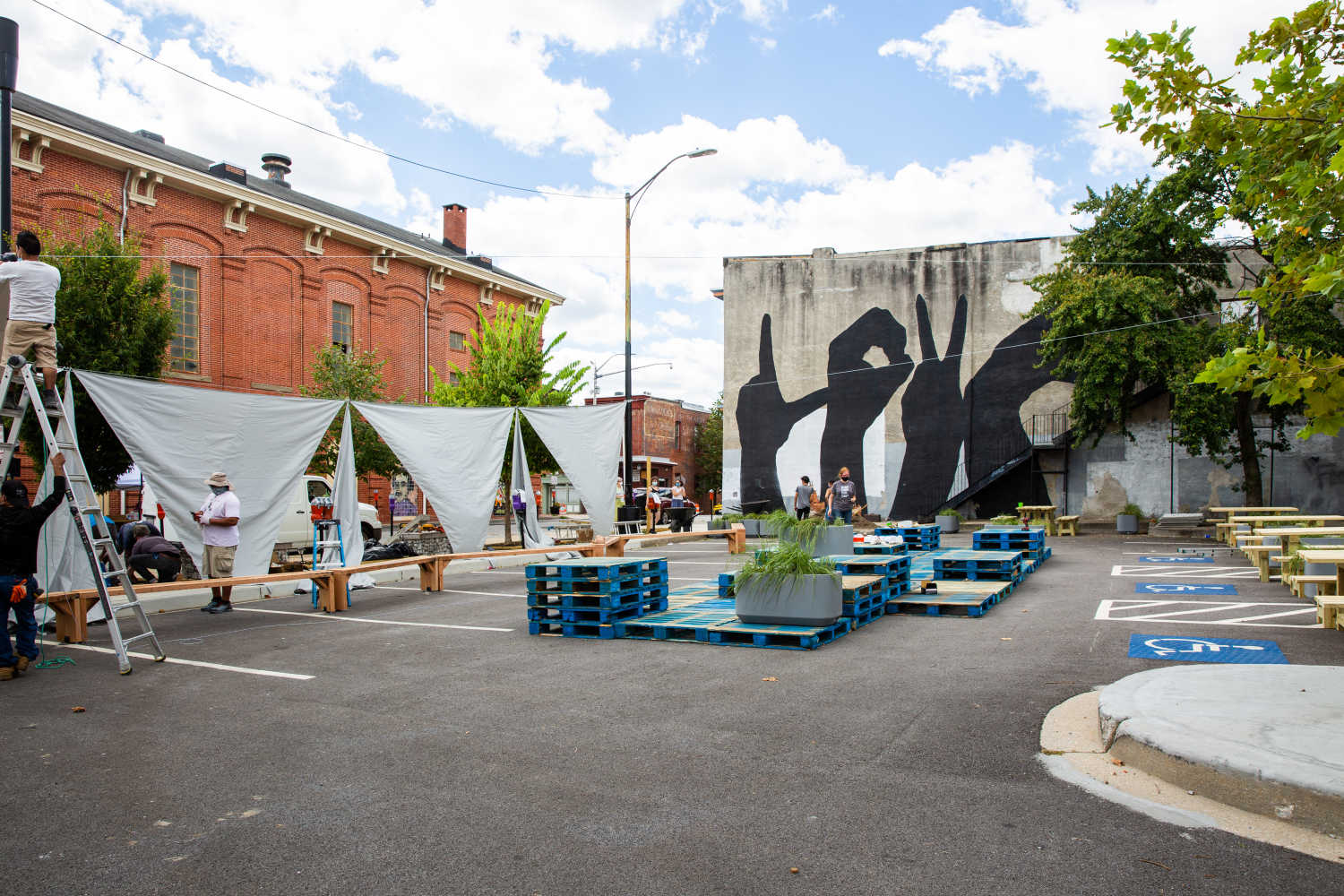
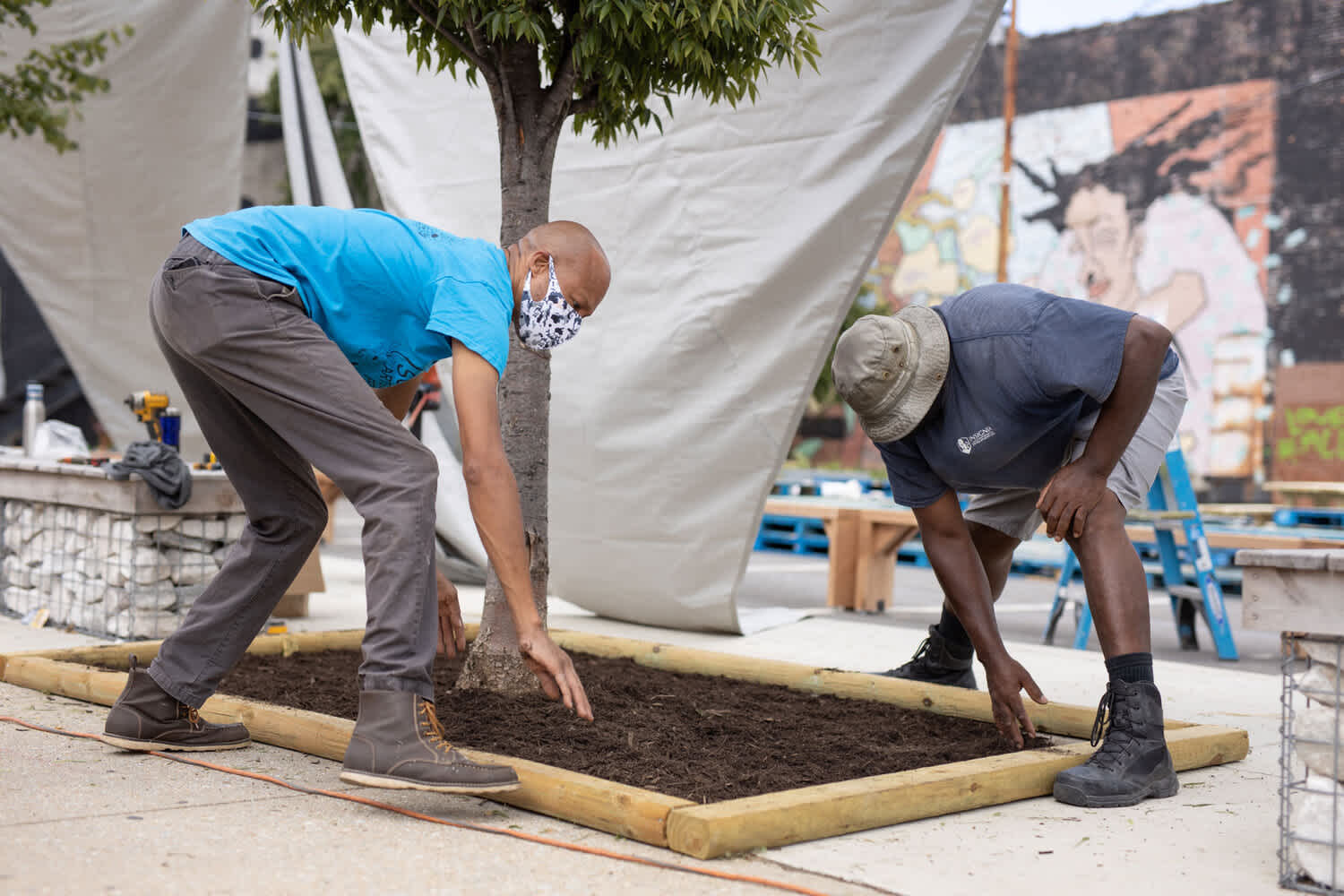
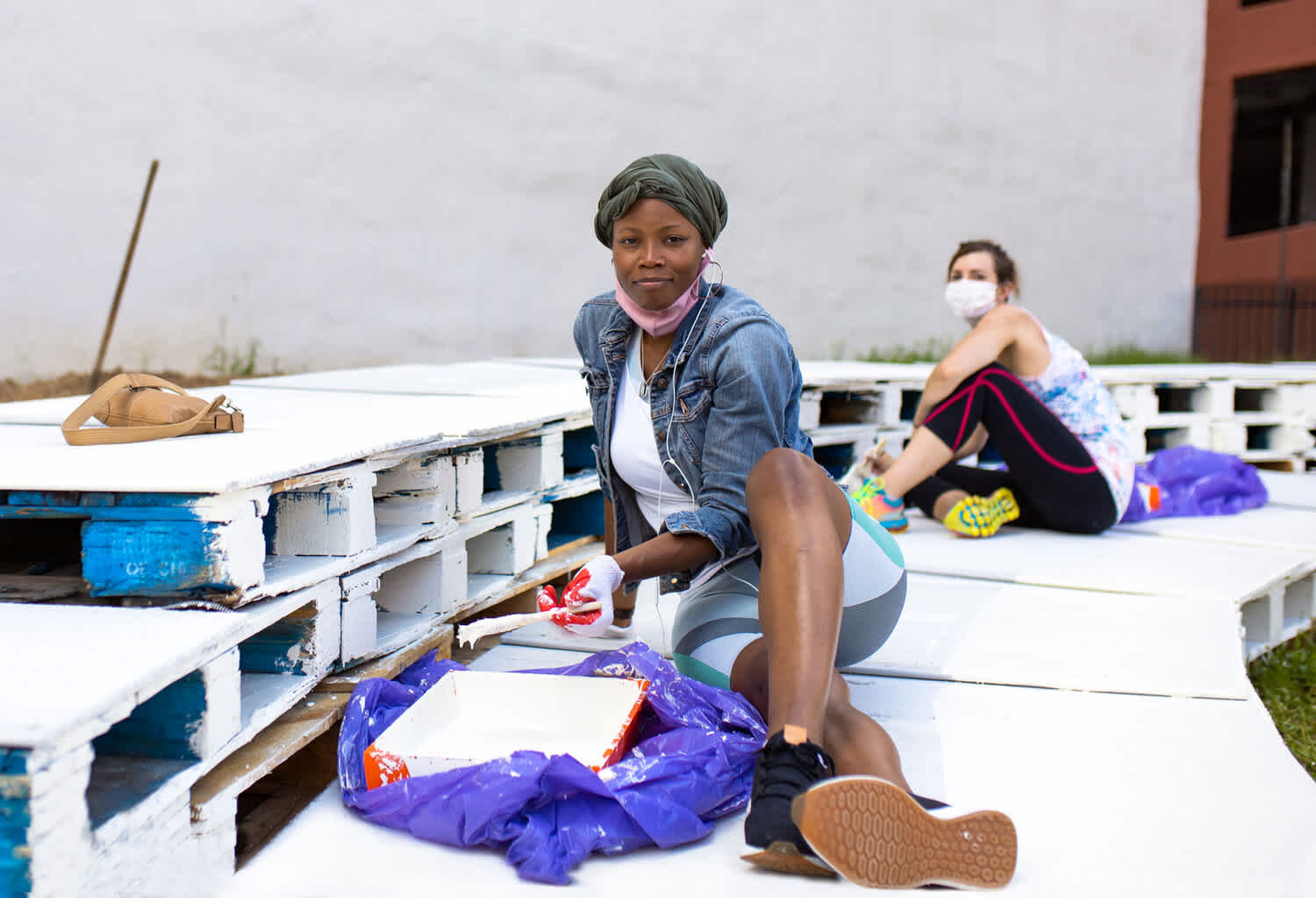
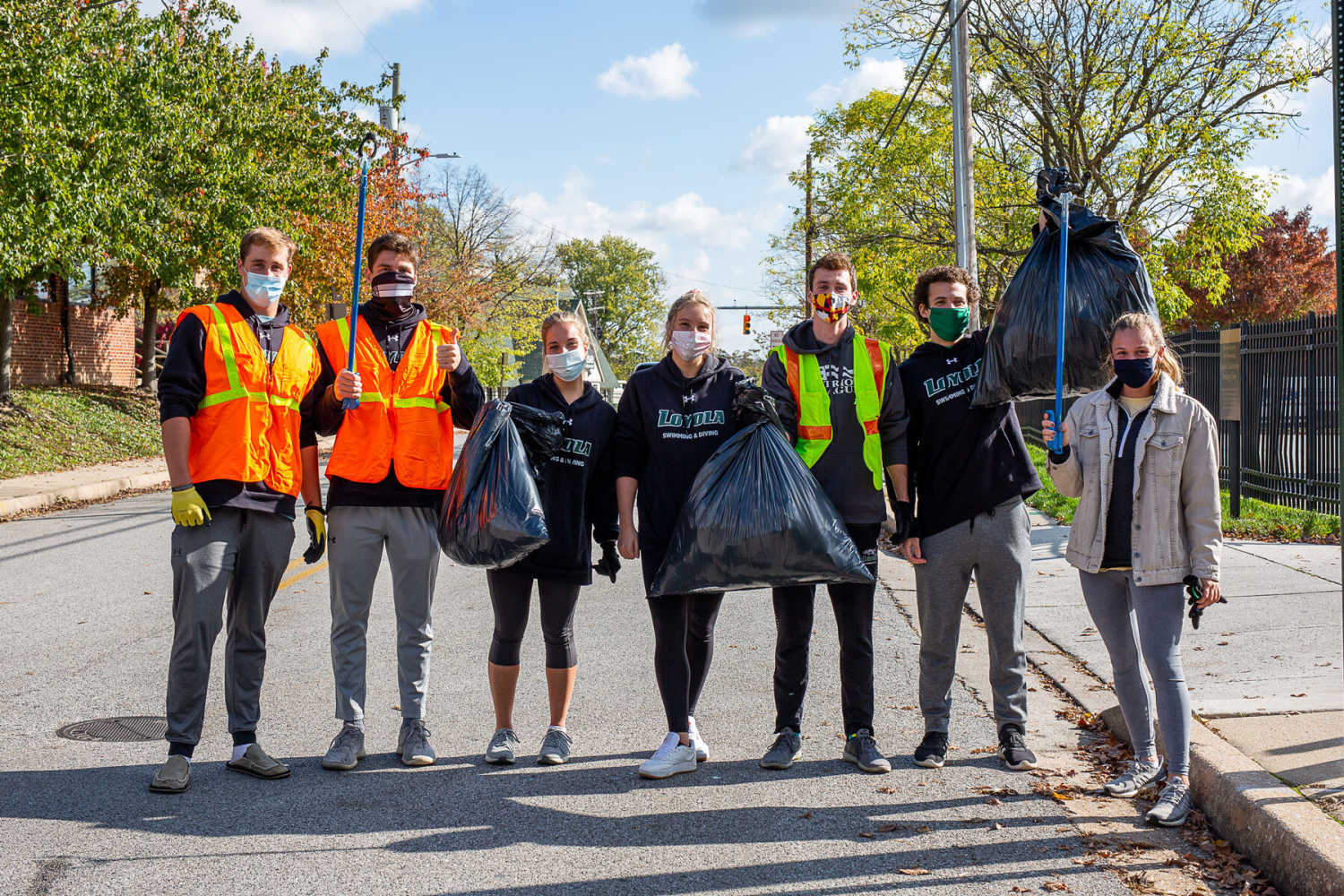
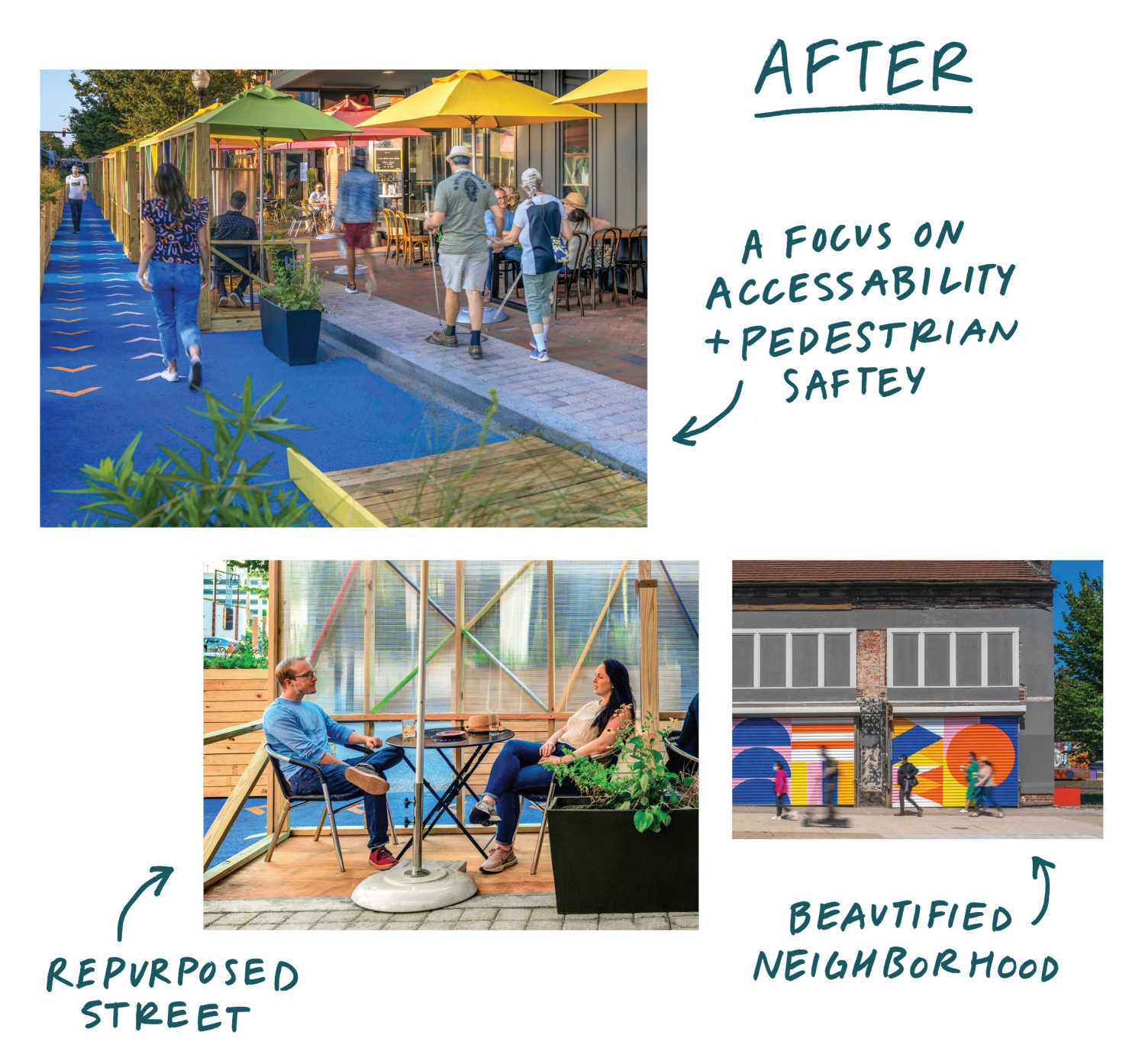
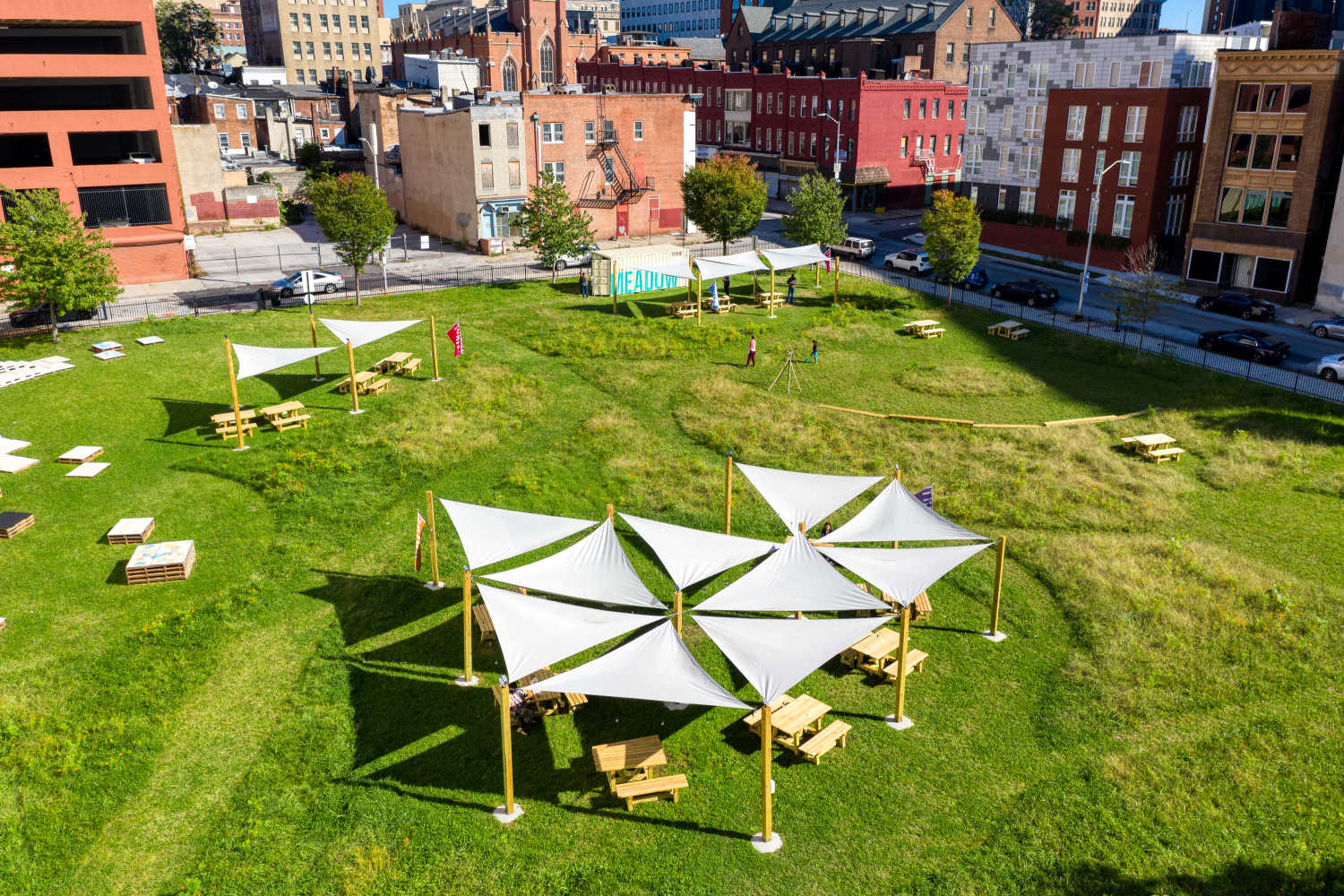
“These projects have shown us how our public spaces can serve small business and the people of Baltimore. Similar projects have popped up all over the city since Design for Distancing, and people are already talking about how to be sure that they’ll live on after the pandemic has passed.”
— Sister Israel, Baltimore resident
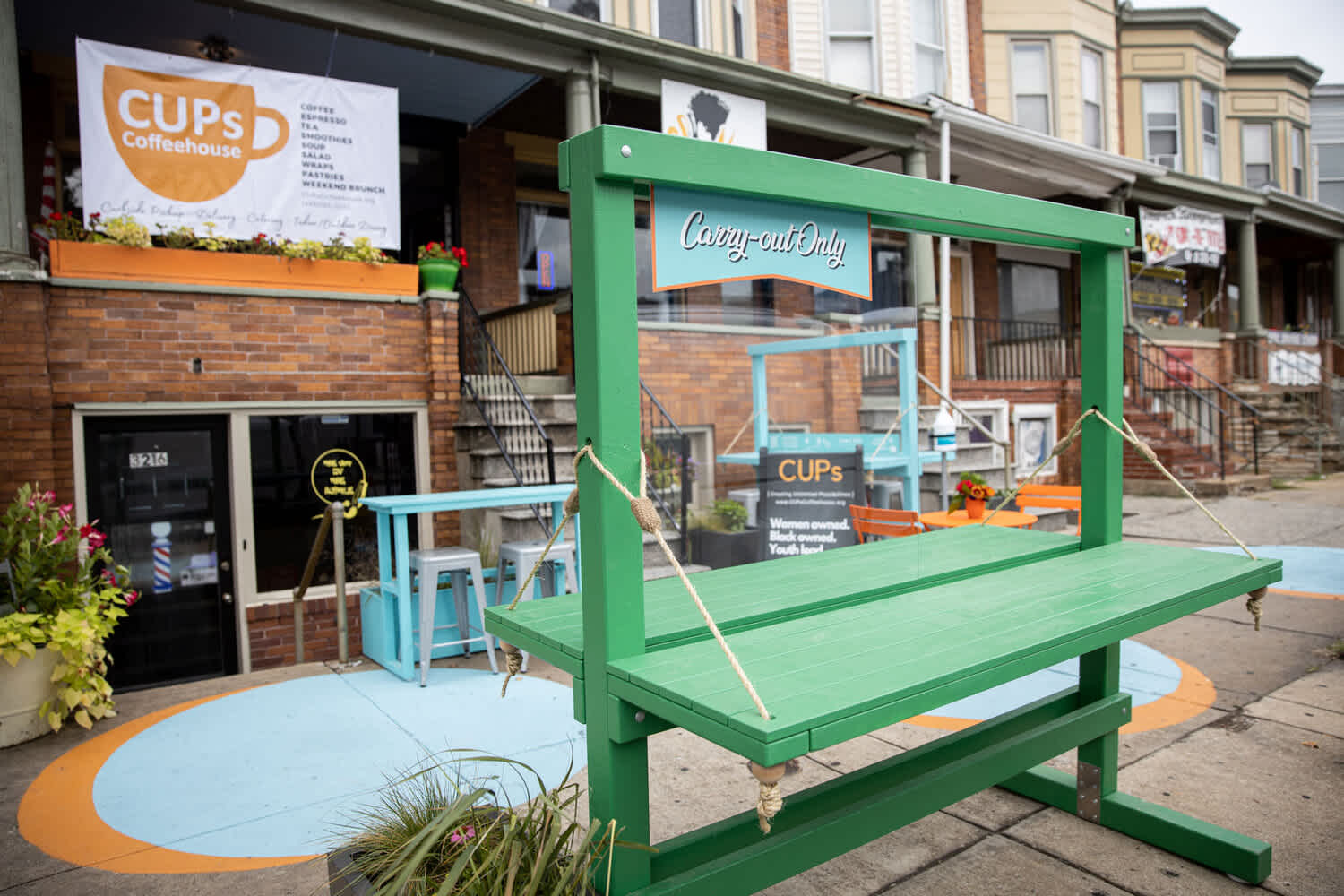

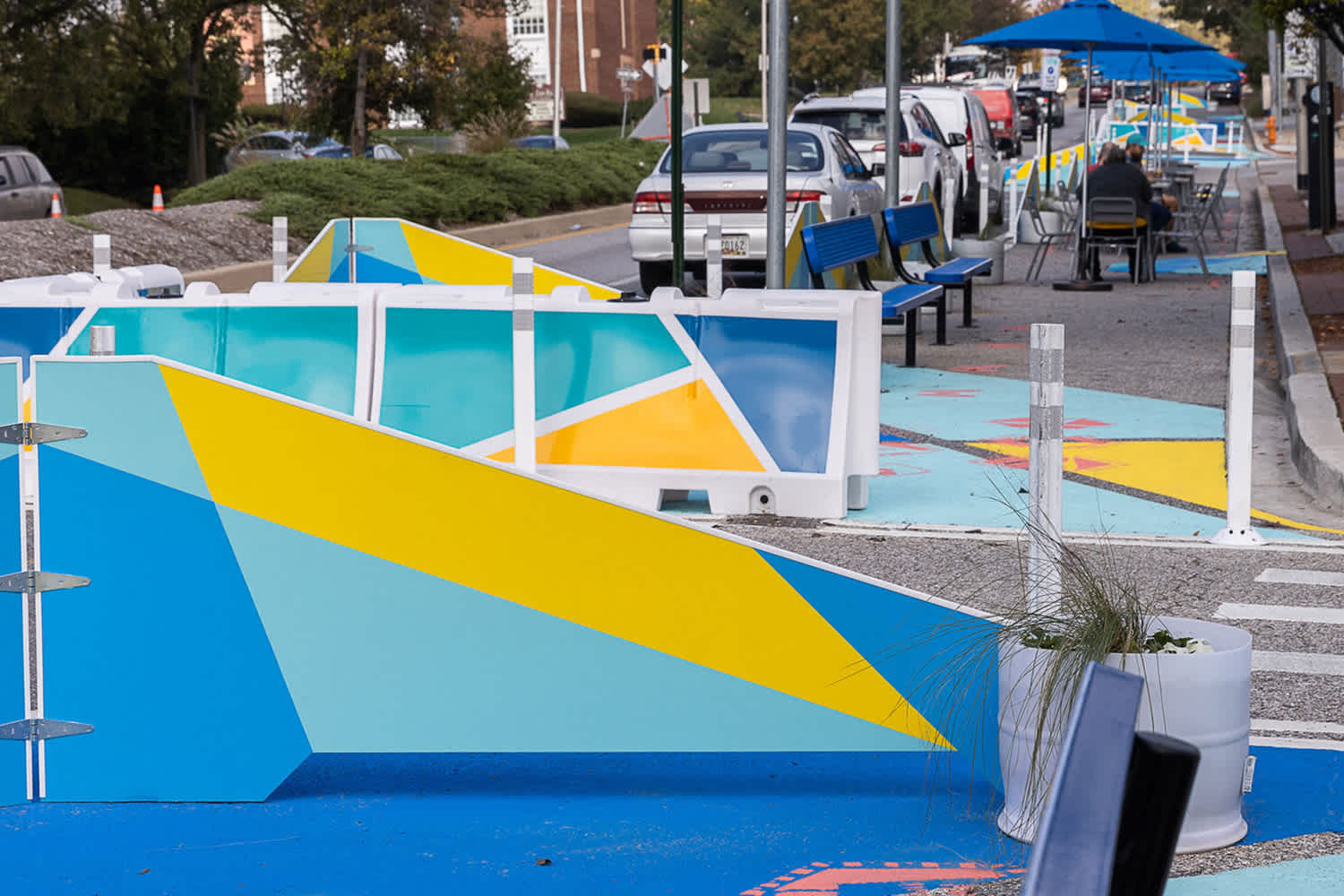
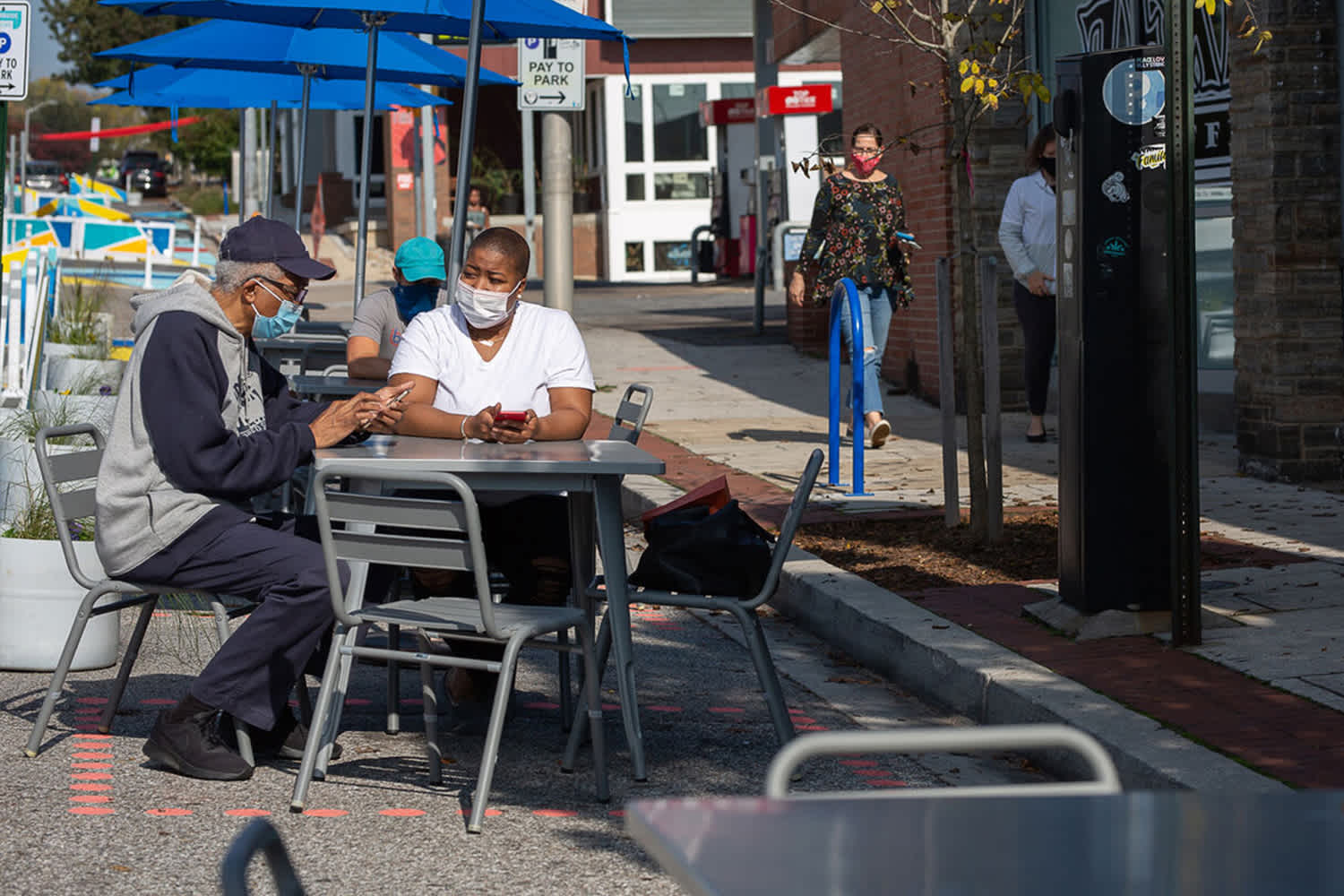
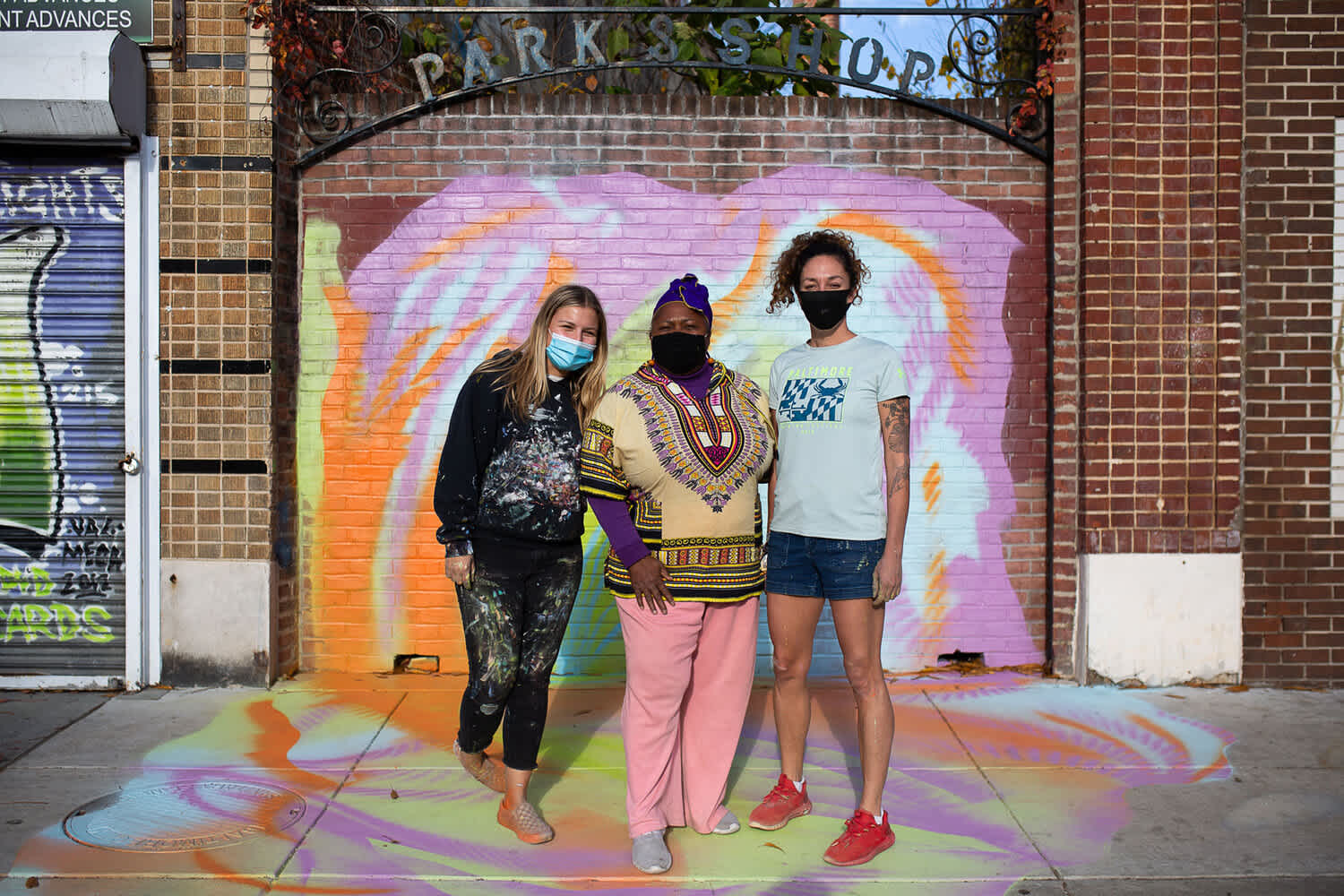
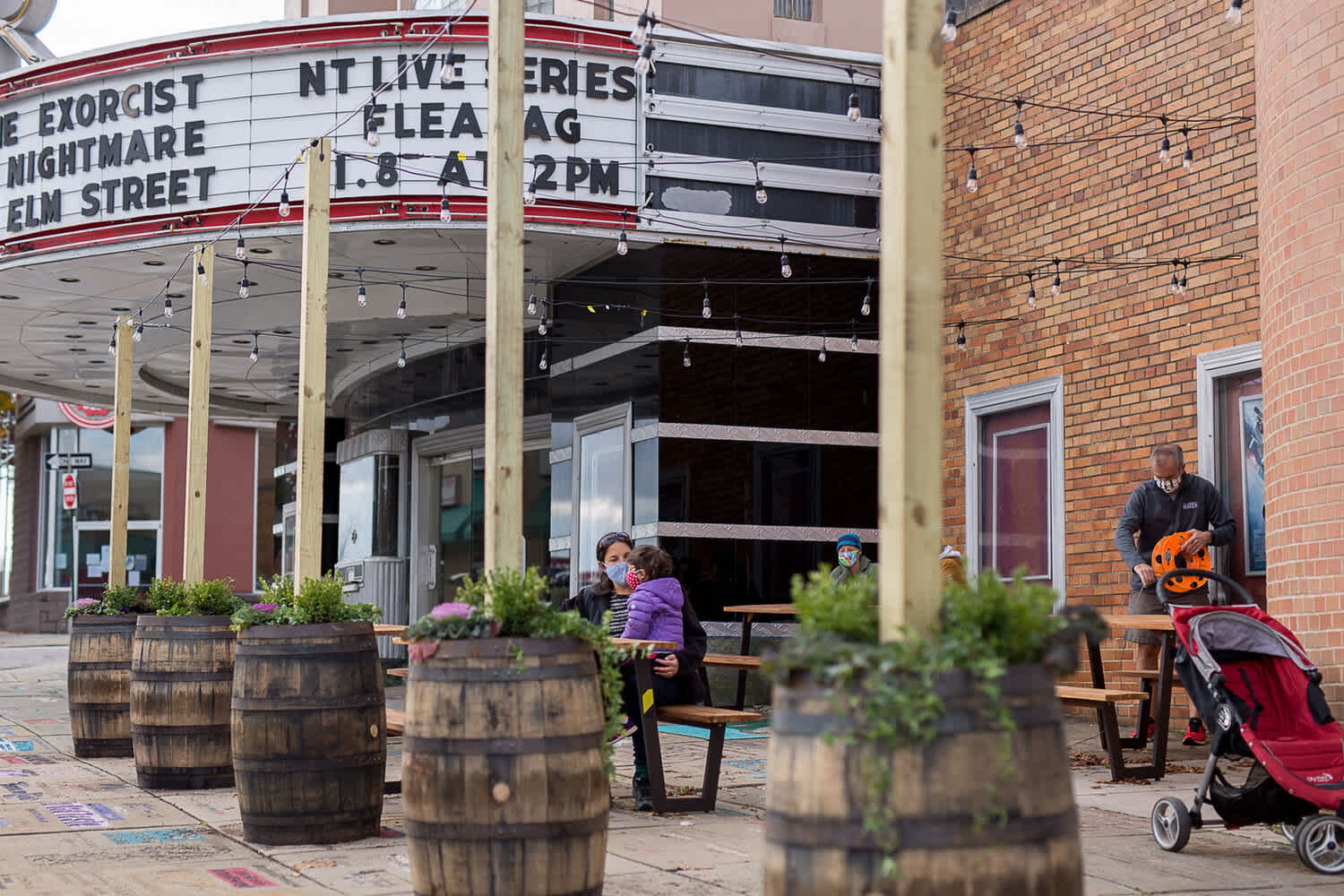
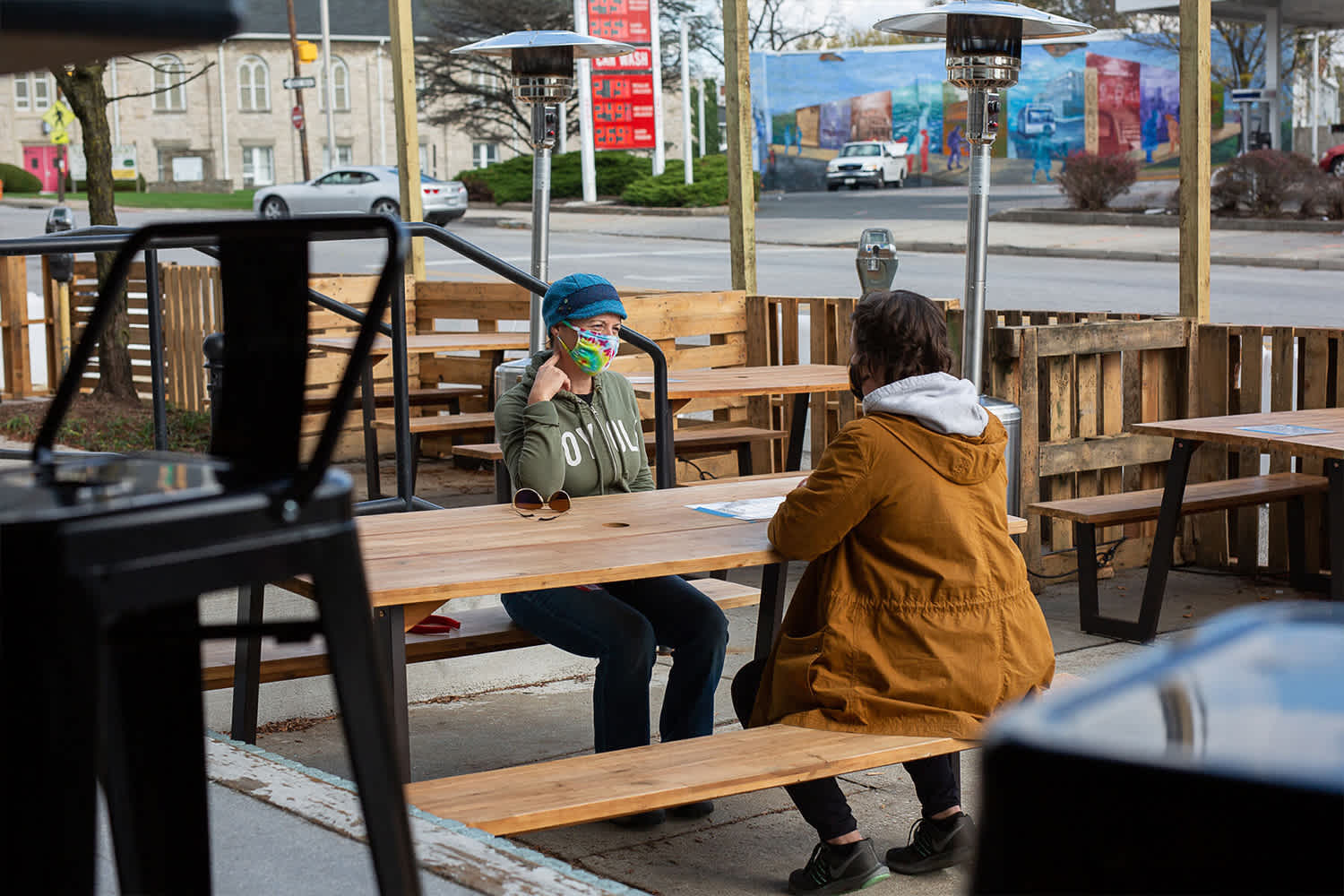
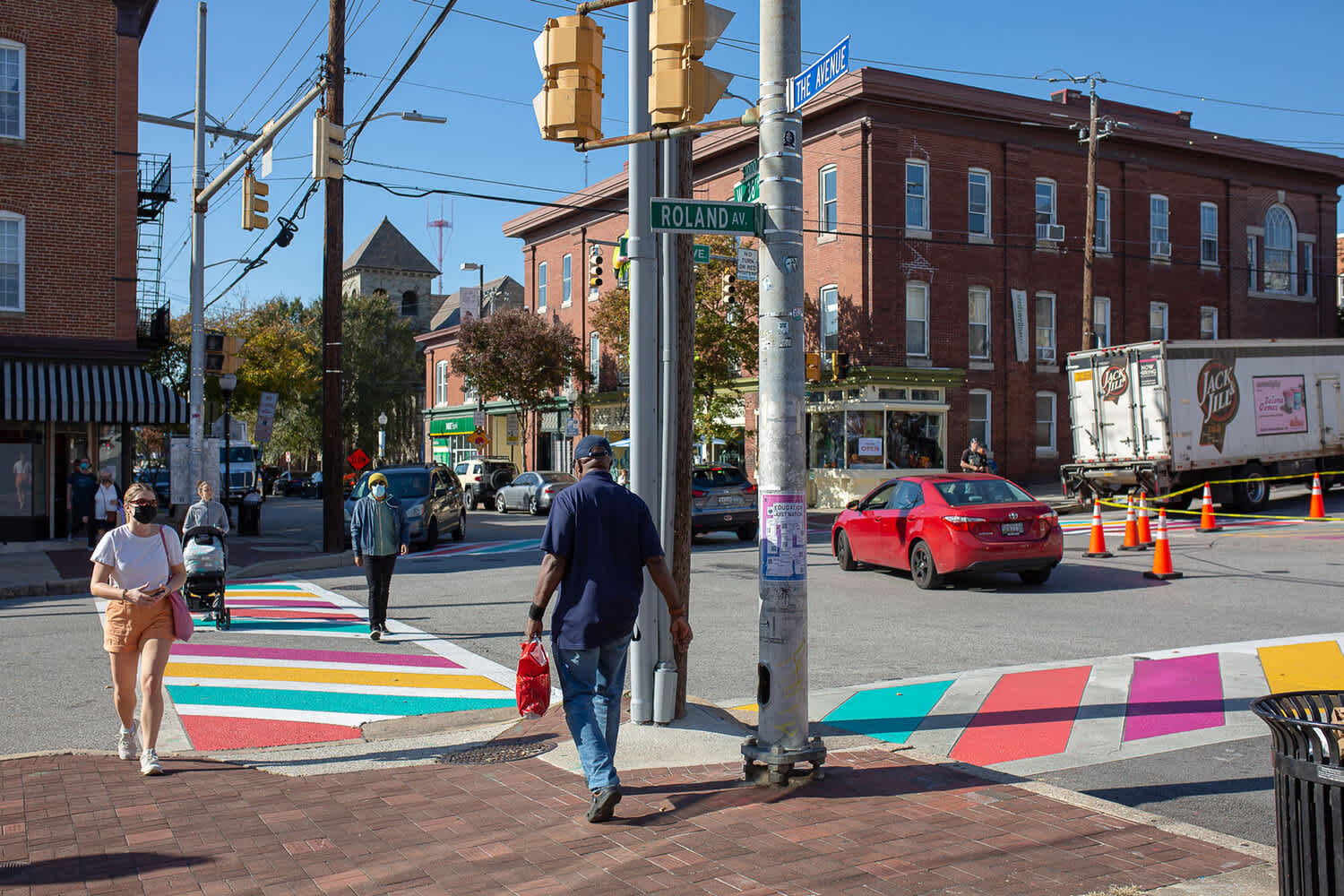
The Future: Make repurposing public space the new norm
Covid-19 has changed our day to day lives deeply. We are spending more time outdoors and in our public spaces, envisioning our relationship to those places anew. Activating and repurposing sidewalks, vacant lots, and parking spots serve us greatly. The future of the Neighborhood Design Center is to keep working with communities towards this healthy and engaged city life, and to inspire others to do the same.
